

Short Essay on Engineer [100, 200, 400 Words] With PDF
In this lesson, you are going to learn how to write short essays on engineers. Here, I will write three different sets of sample essays on the same topic covering different word limits. So, let’s get started.
Table of Contents
Short essay on engineer in 100 words, short essay on engineer in 200 words, short essay on engineer in 400 words.

Engineering has been one of the oldest professions in the world. From the time of the Greek architects and also the Indian craftsman, engineering has been a great deal significant in building houses, roads, bridges, and other equipment. In the 21st century, the job of an engineer is very significant, even for our daily activities.
The knowledge required to be an engineer is huge and needs a good grasp of the field f science. Engineers generally work in several departments, like the IT departments, electronics, mechanical, civil, and others. Today the fashion industries also contain engineering activities for artefacts. The earliest specimen of engineering goes back to the Indus Valley civilization as well. Hence for human civilization, this is a significant profession.
After completing our studies in school we all have to decide our future course of action. Accordingly, that decides what our future profession will be. Engineering is one of the most popular streams that many students take after their higher secondary. To be an engineer essentially requires a science background student with good knowledge of Maths and Physics. Without this criterion, one is not eligible to sit for the entrance exams and get qualified as a student of engineering in a reputed institution. Thus engineering involves much hard work as the profession itself seems to be promising and beautiful.
An engineer, once admitted, reads several subjects and is trained in different They get the knowledge of building houses, bridges, roads, multi-storied companies, railways, hospitals, and other important construction. Their knowledge helps humanity grow and prosper. Also, engineers are associated with the national military and civil forces.
Several important rockets, fighter planes, ships, and other military equipment are all made by engineers. They use their sharp brain to create many historical wonders. From the time of the Indus valley civilization till the British colonial rule, their master engineering has left everyone in awe. Truly for them, we can live peacefully under the roof. Engineers are the backbone of our society.
Every profession in this world deserves equal respect and dignity we need to pay them. Be it a sweeper sweeping the roads or a doctor saving the life of a critical patient, all jobs in this world are made for humanity. An engineer is one of the most significant professions that enables us to live daily. Even the smallest house is also the thoughts of an engineer.
Whatever we see daily around us beyond the green nature, all these are products of the engineer’s brain. The concrete houses, mansions, bridges, railways, cars, motors, engines, roads, hospitals, and others are part of the engineer’s thoughts. Without this profession the development of a country is impossible.
To be an engineer is a tough job. The student who aspires to do so has to go through several trials and stages and then get appointed in that position. Many students from their school life decide to be an engineer and start studying for the entrance exam. It takes a lot to become an engineer. The student aspiring to be an engineer must have a good base of math and physics. After he cracks the entrance exam and gets a good intuition to study further, the student has to now acquire other forms of knowledge.
An engineer can be mechanical, civil, electrical, and others. Even in today’s fashion industries, engineers are highly needed. The student is given both theoretical and practical knowledge of engineering. He is later trusted with the construction of a roof above the human head and also providing them movement. So lack of proper knowledge in them can harm the entire society.
The contribution of an engineer is important. From ancient times, during the Indus Valley civilization, several artefacts were discovered that show a great deal of minute engineering in those statues. Several art facts, house structures, bath places, monuments, mansions, and drainage systems, all are part of this engineering.
Later on during the Sultanate and the Mughal period several monuments, like the G.T. Road and the Taj Mahal, were built as great pieces of architectural engineering marvels. The British Age also saw some great architectural pieces. Thus engineering in several places and at different time spaces has proved how important it is to human society. A good engineer is a boon for society. A person such as an engineer is thus one of the most respected persons of all. He deserves the greatest dignity and love from the country.
Hopefully, after going through this session, you now have a holistic idea regarding this topic and you will be able to write such essays on your own. If you still have any doubts let me know in the comment section below. I will try to resolve your query as soon as possible. Keep browsing our website for more such content.
Join us on Telegram to get all the latest updates on our upcoming sessions. Thanks for being with us. Have a great day.
More from English Compositions
- 100, 200, 400 Words Paragraph and Short Essay [With PDF]
- Write a Letter to the Editor about the bad Condition of the Roads [4 Examples]
- Short Essay on Telephone [100, 200, 400 Words] With PDF
- Processing Writing of Building Construction [With PDF]
- Madhyamik English Writing Suggestion 2022 [With PDF]
- Write a Letter to Your Friend Describing a Fire in a Multi-Storeyed Building in Your Neighborhood
- Write a Letter to the Editor about Unemployment
- Paragraph & Short Essay on APJ Abdul Kalam [100, 200, 400 Words] With PDF
- Short Essay on Indian festival [100, 200, 400 Words] With PDF
- Short Essay on Doctor [100, 200, 400 Words] With PDF
- Short Essay on Taj Mahal [100, 200, 400 Words] With PDF
- How to Get Your First Job in the USA as an Immigrant

Essay on an Engineer for Students and Children in 1000 Words
In this article, read an essay on an engineer for students and children. It includes work, how to select this career, work, and salary of of engineers. Kids will love this short essay and they will understand more about this profession.
Table of Contents
Essay on an Engineer for Students and Children (1000 Words)
Every person has a dream, and he always tries to make it come true, Someone wants to become a doctor so that sick people can be cured, someone wants to become a teacher and spread education in the country. Though My aim in life is to become a civil engineer.
After my higher education , I want to go to Delhi or Pune IIT (India Institute of Technology) to pursue my engineering in civil. Both my father and brother are engineers. My father and brother are also civil engineers.
If we do not set goals to take our life in the right direction, then we can never be a successful person. When I was studying in 9th grade, I grew up and was inspired to become an engineer.
And I had decided that by walking on the path of truth and honesty , I can contribute to the development of the country by becoming a great engineer. I will use my talent properly to contribute to the progress of our country.
Why My Aim in Life Is to Become an Engineer?
I want to become a civil engineer because I had always dreamed of being part of the construction of huge buildings and structures. I also wanted to help the community in constructing buildings safe from earthquakes and other natural calamities.
My father is also a civil engineer, and he was the chief engineer of the colony in which we stay. I inspired by my father. Society loves my father for the work he does, and that carries a lot of respect with him. I also want to achieve the same position someday.
How To Become An Engineer?
From flyover to mobile, automation to medicines, many things we use in our daily life have been built by engineers. After the 10th standard, we can go into the engineering field, and for this, there are different departments in which we can complete our engineering studies.
But we cannot become an engineer as soon as we complete our engineering studies, so what is an engineer, we are going to tell you in this article.
Talking about the meaning of the engineer or the definition of the engineer, “a person who invents an object, designs it or does a machine test, we can say an engineer” make something new.”
A student has to study engineering to become an engineer, for which he must have a diploma or degree of at least three years. There are many fields of engineering that have been made for different products or a particular technology. Like electrical engineering, software engineering, etc.
Whoever is interested in any field, such as someone interested in computers, can do engineering from computer science and make his future in computers .
Apart from this, there are many other branches of engineering which are listed below-
- Mechanical engineering
- Civil Engineering
- Electrical engineering
- Chemical Engineering
- Engineering Management
You can do engineering from any one branch of your choice. And you can make your future in engineering. You should do engineering from the branch which you like more.
Works of an Engineer
Engineers apply theories and principles of science to research and develop economical solutions to technical problems. Engineers’ work is the link between scientific discoveries and commercial applications.
He designs products, machinery to build those products, factories in which those products are made, and the systems that ensure the high quality of the product and efficiency of the manufacturing process. I know every engineer is honest and responsible.
He can take his responsibilities well. An engineer does a lot of hard work . He never gives up on things, even if he fails the number of times.
The engineer is always looking up for something new. As an engineer, you always have the challenges to learn more. Ongoing technological, economic, environmental, and social change can make sure of that.
The Value of an Engineer
For ages, engineering has turned imagination and dreams into something that is useful. Like the invention of the wheel as one of the oldest examples of how engineering has changed our life.
Since the start of the industrial age, the importance and influence of Engineering have grown at the fastest speed.
The modern era we live in wouldn’t have been possible without the marvels of it – microchip, high-speed vehicles, mobile networks, automated assembly lines, and many others. It wouldn’t be too far-fetched to claim that without engineering, our society can not live.
Engineer’s Salary
The salary of an engineer depends on his job in which field he is doing, such as if a computer engineer is doing his job, then his annual income will be around 8 lakh.
Similarly, if someone is working in the mechanical field, then his annual income will be around 4 to 5 lakhs, then the salary of all the engineers depends on his work.
Engineering is one of the ‘happiest’ occupations. According to a survey of engineers, over 94 percent of members said they were happy with their career choices.
It is important that everyone has an aim in his life early so that one can shape up his routine towards working for that aim. Engineer work for the people, and their work carries a lot of risks and dangers.
But when they are successful, people shake their hands and give them respect. One day I will become a civil engineer and undergo that experience myself.
My role model is Sir Mokshagundam Visvesvaraya , who was a great engineer in India. I also want to be like him.
I hope you liked this essay on engineer.
Thanks for sharing this valuable article – Sheikh Tahir Siddiqui
Leave a comment Cancel reply
Home — Essay Samples — Science — Technology & Engineering — Engineering
Essays on Engineering
Crafting an engineering essay isn't just about equations and diagrams; it's a blend of science, creativity, and effective communication. We're here to sprinkle some wisdom your way with tips, prompts, and a bunch of inspiring ideas to get those engineering gears turning.
1. Prompts to Get Your Brain Buzzing
Let's explore some sample prompts. These will help you understand the types of questions you might encounter:
- Discuss the impact of emerging technologies on the field of civil engineering.
- Analyze the environmental sustainability challenges in modern electrical engineering projects.
- Examine the role of robotics in revolutionizing manufacturing processes.
- Explore the ethical considerations in engineering decision-making, using a real-life case study.
These prompts serve as springboards for your essay, guiding your thoughts and helping you structure your content effectively.
2. Brainstorming Epic Essay Topics
Choosing the right topic is the first step towards crafting an outstanding engineering essay. Here are some points to consider while brainstorming:
- Passion: Pick a topic that genuinely excites you. Your enthusiasm will shine through in your writing.
- Relevance: Ensure your chosen topic is relevant to current engineering trends or issues.
- Originality: Avoid well-trodden paths and aim for a unique angle or fresh perspective.
- Research Potential: Confirm that there's enough research material available to support your chosen topic.
- Practicality: Consider the practical aspects of your topic and whether it can be explored effectively in an essay format.
Once you've considered these points, you'll be better equipped to select a topic that'll make your essay stand out.
3. 20 Engineering Essay Topics to Ignite Your Imagination
Now, let's get those creative engineering juices flowing with a list of unique and thought-provoking essay topics:
- 3D Printing Revolution: Explore the impact of 3D printing technology on various engineering disciplines.
- Engineering Marvels: Analyze a renowned engineering project like the Panama Canal or the Burj Khalifa, highlighting its challenges and innovations.
- AI in Healthcare: Discuss the role of artificial intelligence in improving healthcare technology and patient outcomes.
- Sustainable Energy Solutions: Examine the advancements in renewable energy sources and their potential to combat climate change.
- Space Exploration and Engineering: Explore the engineering feats behind space missions, such as the Mars rovers or the International Space Station.
- Green Building Technologies: Analyze the latest trends in eco-friendly construction methods and materials.
- The Ethics of Autonomous Vehicles: Discuss the ethical dilemmas surrounding self-driving cars and their impact on society.
- Water Resource Management: Examine innovative engineering solutions for sustainable water supply and management.
- The Future of Transportation: Explore the possibilities of hyperloop technology and its potential to revolutionize transportation.
- Engineering in Disaster Relief: Analyze the role of engineering in disaster response and recovery efforts.
- Nanotechnology Breakthroughs: Discuss the recent breakthroughs and applications of nanotechnology in various engineering fields.
- Biomechanics and Sports Engineering: Examine the engineering behind sports equipment and how it enhances athlete performance.
- Space Elevators: Explore the theoretical concept of space elevators and their feasibility for future space travel.
- Renewable Energy Storage: Analyze innovative methods for storing renewable energy efficiently.
- Engineering in Art Conservation: Discuss how engineering techniques are used to preserve and restore valuable works of art and cultural heritage.
- Humanoid Robotics: Examine the development of humanoid robots and their potential applications in various industries.
- The Role of Engineers in Climate Change Mitigation: Discuss how engineers are actively working to combat climate change through sustainable solutions.
- Environmental Impact of E-Waste: Analyze the environmental consequences of electronic waste and potential engineering solutions.
- Engineering Challenges in Underwater Exploration: Explore the unique challenges engineers face in designing equipment for underwater exploration.
- Smart Cities: Discuss the concept of smart cities and how engineering plays a pivotal role in their development.
These topics offer a wide range of exciting possibilities to explore in your engineering essay. Pick one that resonates with your interests and dive right in!
4. Inspiration for Crafting Stellar Paragraphs
Now, let's sprinkle some inspiration on your essay with sample paragraphs and phrases that can elevate your writing:
Paragraph 1: Introduction
Engineering is the backbone of modern civilization, driving innovation, and shaping our world. In this essay, we embark on a thrilling journey through the fascinating realm of engineering, exploring its diverse facets, challenges, and contributions to society. From cutting-edge technologies to sustainable solutions, we'll delve deep into the heart of engineering excellence.
Paragraph 2: The Impact of 3D Printing Technology
3D printing technology has revolutionized the way we design and manufacture products across various industries. Its applications span from aerospace to healthcare, offering cost-effective and efficient solutions. For instance, in the aerospace sector, 3D printing has enabled the creation of intricate and lightweight components, reducing fuel consumption and carbon emissions. This breakthrough technology not only enhances engineering efficiency but also paves the way for a more sustainable future.
Paragraph 3: Ethics in Engineering Decision-Making
Engineering isn't just about technical know-how; it also involves ethical considerations that can have far-reaching consequences. Take the example of the decision-making process in designing autonomous vehicles. Engineers face complex moral dilemmas, such as how an autonomous car should prioritize passenger safety over pedestrians or vice versa. These ethical questions require careful examination and transparent discussions to ensure that engineering advancements align with societal values and priorities.
Paragraph 4: The Future of Sustainable Energy
As the world grapples with the impending climate crisis, engineers play a pivotal role in developing sustainable energy solutions. Solar panels, wind turbines, and energy-efficient buildings are just a few examples of engineering innovations aimed at reducing carbon footprints. For instance, the incorporation of energy-efficient materials in construction not only lowers energy consumption but also contributes to the longevity of buildings, reducing maintenance costs. This intersection of engineering and sustainability holds the promise of a greener and cleaner future.
Paragraph 5: The Challenges of Space Exploration
Engineering marvels are prominently displayed in the field of space exploration. The challenges engineers face are immense, from designing spacecraft capable of surviving the harsh conditions of space to ensuring the safety of astronauts during extended missions. The Mars rovers, with their remarkable ability to explore the Red Planet remotely, showcase the engineering ingenuity required for interplanetary exploration. These endeavors expand our understanding of the universe and inspire the next generation of engineers to reach for the stars.
And there you have it, dear engineering essay enthusiast! Armed with prompts, brainstorming tips, unique topics, and inspirational sample paragraphs, you're well-equipped to embark on your journey of crafting an exceptional engineering essay. So, roll up your sleeves, grab your keyboard, and let your engineering brilliance shine through your words. Happy writing!
The Pros and Cons of Genetic Engineering and The Need for Regulation
Exploring the pros and cons of genetic engineering, made-to-order essay as fast as you need it.
Each essay is customized to cater to your unique preferences
+ experts online
Pros and Cons of Genetic Engineering: The Need for Proper Regulation
Engineering: short info about the most important things, the importance of science in engineering for human, why i choose a degree in engineering, let us write you an essay from scratch.
- 450+ experts on 30 subjects ready to help
- Custom essay delivered in as few as 3 hours
My Devotion to Engineering Studies
Communication of engineers with the general public, my motivation to further study engineering and machinery, my motivational letter: mechanical engineering, get a personalized essay in under 3 hours.
Expert-written essays crafted with your exact needs in mind
Ethics for Software Engineering
Values professionalism, dedication and responsibility in engineering culture, my motivation to study at cornell’s college of engineering, civil engineering through the history, all you need to know about software engineering, the job in computer engineering, my goal to build a career in industrial engineering, interest in the field of environmental engineering, statement of purpose (electronics and communication engineering), my passion in electrical and computer engineering, my goal to pursue a career in computer science and engineering, my letter of motivation: electrical and electronics engineering, heat exchanger technology and applications in heat exchanger engineering, drones' capacity in civil engineering, system science and engineering helping bedridden patients, why i opt industrial engineering in my undergraduate, use of biofuel as a sustainable engineering solution, finite element method in the engineering, the role of electronics and telecommunication engineering education in my life, engineering education research statement.
Engineering is a discipline and profession that applies scientific, mathematical, and technical knowledge to design, create, improve, and innovate various systems, structures, machines, and processes to address practical problems and meet human needs. It involves the application of scientific principles, empirical evidence, and practical expertise to develop practical solutions that improve the quality of life, enhance efficiency, and contribute to societal advancements.
Engineering has its origins in the earliest human civilizations, where primitive engineering techniques were employed to build structures and develop technologies to meet various needs. The history of engineering is a testament to humanity's ingenuity and problem-solving abilities. The roots of engineering can be traced back to ancient civilizations such as Mesopotamia, Egypt, and Indus Valley, where advancements in agriculture, irrigation systems, and construction techniques took place. These early developments laid the foundation for engineering principles that are still relevant today. Over time, engineering evolved and diversified into various disciplines such as civil engineering, mechanical engineering, electrical engineering, and many more. The Industrial Revolution in the 18th and 19th centuries marked a significant milestone in engineering history, with the emergence of innovative technologies and machinery that revolutionized manufacturing processes and transportation systems. Throughout the 20th century, engineering continued to advance rapidly, driven by scientific discoveries and technological breakthroughs. The fields of aerospace engineering, computer engineering, and biomedical engineering, among others, emerged, shaping the modern world and expanding the boundaries of human capabilities. Today, engineering plays a vital role in addressing global challenges and improving quality of life. Engineers are at the forefront of designing sustainable infrastructure, developing renewable energy solutions, creating advanced technologies, and finding innovative solutions to complex problems.
Civil Engineering: This branch deals with the design, construction, and maintenance of infrastructure such as buildings, bridges, roads, dams, and water supply systems. Mechanical Engineering: Mechanical engineers work on the design, development, and manufacturing of machinery, engines, vehicles, and other mechanical systems. Electrical Engineering: Electrical engineers specialize in the study and application of electrical systems, including power generation, transmission, and utilization, as well as electronics and telecommunications. Chemical Engineering: Chemical engineers are involved in the design and operation of processes that transform raw materials into useful products, such as pharmaceuticals, fuels, and chemicals. Aerospace Engineering: Aerospace engineers focus on the design, development, and testing of aircraft, spacecraft, and related technologies. Computer Engineering: Computer engineers work on the design and development of computer systems, hardware, and software, including areas like computer networks, cybersecurity, and artificial intelligence. Environmental Engineering: Environmental engineers work to protect and improve the environment by designing sustainable solutions for waste management, pollution control, and resource conservation. Biomedical Engineering: Biomedical engineers combine engineering principles with medical and biological sciences to develop solutions for healthcare, including medical devices, prosthetics, and imaging systems.
Nikola Tesla: A Serbian-American inventor and electrical engineer, Tesla's work revolutionized the field of electrical power and laid the foundation for the development of alternating current (AC) systems. Leonardo da Vinci: Although best known as an artist, da Vinci was also an engineer and inventor. His designs and sketches showcased his visionary ideas for inventions such as flying machines, bridges, and military weapons. Thomas Edison: An American inventor and businessman, Edison is credited with numerous inventions, including the practical electric light bulb, phonograph, and motion picture camera, which revolutionized the modern world. Grace Hopper: An American computer scientist and naval officer, Hopper played a pivotal role in the development of computer programming languages. Her work on the development of COBOL (Common Business-Oriented Language) paved the way for modern software engineering. Elon Musk: A contemporary entrepreneur and engineer, Musk has made significant contributions to various fields, including electric vehicles (Tesla), space exploration (SpaceX), and renewable energy (SolarCity).
Innovation and Advancement: Engineering drives innovation by developing new technologies, products, and solutions to address societal needs. It fosters advancements in various fields, including transportation, communication, healthcare, energy, and more. Infrastructure Development: Engineers design and construct critical infrastructure such as buildings, bridges, roads, and transportation systems. These structures are the backbone of societies, facilitating economic growth, connectivity, and improved quality of life. Problem Solving: Engineers are problem solvers, using scientific and mathematical principles to analyze complex challenges and develop practical solutions. Their expertise is essential in finding sustainable and efficient ways to tackle global issues like climate change, pollution, and resource scarcity. Economic Growth: Engineering contributes to economic growth by fostering innovation, creating job opportunities, and driving productivity. It supports industries and entrepreneurship, leading to the development of new businesses and the generation of wealth. Safety and Sustainability: Engineers play a critical role in ensuring the safety and sustainability of our built environment. They develop and implement measures to mitigate risks, protect the environment, and promote sustainable practices in areas such as waste management, renewable energy, and urban planning. Global Challenges: Engineering is instrumental in addressing global challenges such as climate change, water scarcity, and healthcare accessibility. Through sustainable engineering practices, efficient resource management, and the development of resilient infrastructure, engineers contribute to a more sustainable and inclusive future.
1. The word "engineer" is derived from the Latin word "ingeniator," which means "clever contriver" or "deviser of engines." 2. The Great Wall of China, one of the most iconic engineering marvels, spans over 13,000 miles (21,196 kilometers) and took centuries to build. 3. The world's tallest man-made structure, the Burj Khalifa in Dubai, stands at a height of 2,717 feet (828 meters) and required the expertise of thousands of engineers. 4. The Panama Canal, an engineering feat completed in 1914, shortened the sea journey between the Atlantic and Pacific Oceans by approximately 8,000 nautical miles. 5. The Hoover Dam, located on the border of Nevada and Arizona in the United States, generates enough electricity to serve over 1.3 million people and provides water to millions of acres of farmland. 6. According to the American Society for Engineering Education, the number of engineering bachelor's degrees awarded in the United States has been steadily increasing, with over 114,000 degrees awarded in the 2019-2020 academic year.
Engineering is a topic of utmost importance to explore and discuss in an essay due to its profound impact on society and the world we live in. This field plays a crucial role in shaping our infrastructure, technology, and quality of life. By studying engineering, we gain insights into the innovative solutions that engineers develop to address complex challenges and improve various aspects of our lives. An essay on engineering allows us to delve into the diverse branches of engineering, such as civil, mechanical, electrical, and biomedical, highlighting their unique contributions to society. It enables us to explore the fascinating history of engineering, from ancient marvels to modern advancements, showcasing humanity's quest for progress and innovation. Moreover, engineering is intricately linked to key global issues, including sustainability, renewable energy, transportation, healthcare, and urban development. By examining these topics in an essay, we can explore the ways engineers contribute to finding sustainable solutions, mitigating environmental impact, and creating a better future for all.
1. Bucciarelli, L. L. (1994). Engineering philosophy. Springer. 2. Budynas, R. G., & Nisbett, J. K. (2016). Shigley's mechanical engineering design (10th ed.). McGraw-Hill Education. 3. Dowling, N. E., & Carew, A. L. (2015). Engineering your future: A comprehensive introduction to engineering (9th ed.). Oxford University Press. 4. Gere, J. M., & Goodno, B. J. (2017). Mechanics of materials (9th ed.). Cengage Learning. 5. Helsel, S. C., & Helsel, J. L. (2012). Engineering ethics: Concepts and cases. Cengage Learning. 6. Hillier, F. S., Lieberman, G. J., & Lieberman, M. A. (2013). Introduction to operations research (10th ed.). McGraw-Hill Education. 7. Kutz, M. (Ed.). (2016). Mechanical engineers' handbook: Materials and engineering mechanics (4th ed.). Wiley. 8. Moran, M. J., Shapiro, H. N., Boettner, D. D., & Bailey, M. B. (2010). Fundamentals of engineering thermodynamics (7th ed.). Wiley. 9. O'Brien, J. A., & Marakas, G. M. (2010). Management information systems (10th ed.). McGraw-Hill Education. 10. Shigley, J. E., & Budynas, R. G. (2014). Mechanical engineering design (10th ed.). McGraw-Hill Education.
Relevant topics
- Genetic Engineering
- Mathematics in Everyday Life
- Natural Selection
- Time Travel
- Charles Darwin
- Stephen Hawking
By clicking “Check Writers’ Offers”, you agree to our terms of service and privacy policy . We’ll occasionally send you promo and account related email
No need to pay just yet!
Bibliography
We use cookies to personalyze your web-site experience. By continuing we’ll assume you board with our cookie policy .
- Instructions Followed To The Letter
- Deadlines Met At Every Stage
- Unique And Plagiarism Free
- Search Search for:
- Architecture
- Military Tech
- DIY Projects

32 Best Topics For An Engineering Essay

If a regular college student was told to come up with a list of the most difficult academic disciplines to deal with, we bet that engineering would be deservedly mentioned. Yes, this discipline is quite challenging to get around, which is especially true of home assignments in engineering so some students are forced to ask someone to write my essay . This delicate problem often prompts some students to apply for help to online services, asking, “ do my engineering homework .” But it’s not only homework assignments in engineering that give college kids a hard time – another big burden connected with this discipline is academic writing.
In engineering paper writing, the first and most exasperating obstacle is settling on the topic. At first sight, choosing a paper topic seems to be quite easy. In reality, given the complexity of the discipline, developing a topic for an engineering discipline is a rigorous process. For this reason, we decided to put pen to paper and provide you with the greatest engineering essay topics!
Software Engineering Essay Topics
- The rapid evolution of neural networks
- Computer-assisted education as an innovative solution to the traditional academic system
- The implementation of machine learning in today’s digital industry
- The risks of using virus-infected computer software
- Virtual reality and human perception
- AI in modern digital marketing
- The challenges of database management
- The interactions between humans and machines
- The problem of ethical hacking today
- The development of biometric systems for computers
Biomedical Engineering Essay Topics
- The critical importance of modeling diseases through engineering
- The ways of improving medical imaging methods
- The outlook for structural health monitoring
- Genetic engineering as one of the most popular fields of biomedical engineering
- The use of biomedical engineering in handling the COVID-19 situation
- Biorobotics in disease detection
- The authentication systems based on biorobotics
- The treatment of cardiac diseases with the help of biomedical engineering
Structural Engineering Essay Topics
- The use of software in modeling experiments
- How to study the vulnerability of a particular area
- Self-healing: core principles
- The utilization of probabilistic methods in structural engineering
Mechanical Engineering Essay Topics
- Marine shipping and air pollution
- The history of mechanical engineering
- Parallel kinematic machines
- Manufacturing systems: performance analysis
- Electricity production mechanisms used at nuclear power plants
- The technology of solid-liquid separation
- The mechanical engineering of the smart auto-reeling mechanism
- Perpetual motion machines: the outlook
- The implementation of oil depletion
- The use of mechanical engineering in metallurgy
Engineering Writing Is Easy!
Developed by our top engineering specialists, these longed-for paper topics are for all students who fail to develop a good idea for their engineering papers. As you can now see, creating a solid engineering paper topic is not as big a deal as some college students believe it to be. Equipped with these 32 brilliant paper topics, you no longer have to torment yourself with the tedious procedure of seeking inspiration for your academic paper. Make sure to select the best topic from our top list developed by the leading experts in engineering!
Leave a Reply Cancel reply
Your email address will not be published. Required fields are marked *
Notify me of follow-up comments by email.
Notify me of new posts by email.

Important Addresses

Harvard College
University Hall Cambridge, MA 02138
Harvard College Admissions Office and Griffin Financial Aid Office
86 Brattle Street Cambridge, MA 02138
Social Links
If you are located in the European Union, Iceland, Liechtenstein or Norway (the “European Economic Area”), please click here for additional information about ways that certain Harvard University Schools, Centers, units and controlled entities, including this one, may collect, use, and share information about you.
- Application Tips
- Navigating Campus
- Preparing for College
- How to Complete the FAFSA
- What to Expect After You Apply
- View All Guides
- Parents & Families
- School Counselors
- Información en Español
- Undergraduate Viewbook
- View All Resources
Search and Useful Links
Search the site, search suggestions, alert: update to standardized testing policy.
Starting with those applying to the Harvard Class of 2029 (entering fall 2025), Harvard College will require the submission of standardized test scores from applicants for admission as part of the whole-person application review process that takes a whole-student approach. Please visit our FAQ for more information .
Last Updated: April 11, 12:37pm
Open Alert: Update to Standardized Testing Policy
Why i chose harvard for engineering.

It isn’t easy deciding what you want to study after you’ve gotten your high school diploma, but what’s even harder to decide is where you want to study.
I’m sure that if you’re reading this post right now, you’re likely a person interested in engineering who wants to know what it’s like at Harvard. Or maybe you aren’t and instead you just want to read the life stories about the people who attend this college. Regardless of what the case may be, I happily invite you to continue reading on!
When one thinks about an engineering school, thoughts usually revolve around MIT, Stanford, Caltech, etc. It isn’t often that when it comes down to it, Harvard is thrown into the mix of schools to consider for this particular field. And yet when National Decision Day presented itself before me, it was Harvard that I chose in the end.
Why? Well it was primarily for two reasons: the community and location.
Let’s start with the community. As a result of Harvard not being known as a school with a strong engineering background, less students apply to the institution with this concentration in mind. As such, the engineering community is much smaller compared to that of MIT or Stanford, where the majority of the focus is on technology. And while at first glance, this may seem like a detrimental aspect of the college, it is in fact a beneficial one. As a result of the community being a much smaller one, it also becomes a much tighter one, in which there is ample opportunity to connect with professors and faculty within the field compared to that of other universities with a 300:1 student-teacher ratio. You much more easily pursue research with a professor and create new inventions with them. On the flip side, you also have the chance to take them out for lunch and get to know them outside the academic scene and more intimately.

A rendering/simulation of a black hole I made from scratch! Took 16 hours in total to create this bad boy.
In addition, since there is a smaller number of students present, there is less competition between them when vying for internships and job opportunities at various engineering and computer science positions. When a company only has 20 spots available for students at a school, it’s particularly nice to know that you're going against, say, 50 students rather than 800. But this idea of job prospects also brings me to my next point regarding location.
Because of the fact that Harvard is located in Cambridge , Massachusetts, that in of itself opens up so many opportunities. Cambridge is known to be a hotbed for various STEM-focused companies and this trend also extends itself into the neighboring city of Boston as well. As such, it’s easier to get into contact with these companies in order to get on their radar for potential hires and to further make yourself known in an already highly competitive field. Not to mention, since Harvard is located so closely to MIT, there exists the opportunity to cross-register for classes at the institution in order to further bolster (and even develop) new skills one may not have previously possessed. And of course, the new addition of Harvard’s engineering campus is sure to be one more reason out of the multiple already stated on why one should consider studying engineering here.

V2 of the electric skateboard I built (excluding the motor). It has a max speed of 25 mph and I ride it everywhere in Boston and Cambridge. Took 6 hours to build my first one, but this second one took 2!
So while not many may at first believe Harvard to be an engineering school, this couldn’t be farther from the truth. Engineering is not simply putting two things together and seeing whether they work. No, it’s connecting with others over a common issue and sharing your knowledge and ideas regarding the subject. It is not the invention that fuels the idea but rather the idea that fuels the invention and these ideas only come from the collaboration and interaction of others, both like-minded and different.
- Student Activities
Denzel Class of '24
Hey everyone! My name is Denzel and I’m a current junior from Boston, Massachusetts who is living in Currier House. By the time you’re reading this, I’ve already declared myself as a Mechanical Engineering concentrator with a secondary in Astronomy and am neck deep in psets and projects.

Student Voices
Dear homesick international student at harvard college.
David Class of '25

An International First Year's Guide to Thanksgiving Break
Faseeh Class of '27

Directing the 36th Ghungroo: Celebrating South Asian Culture at Harvard!
Hana Rehman Class of '25


Essay on Engineers Day
Students are often asked to write an essay on Engineers Day in their schools and colleges. And if you’re also looking for the same, we have created 100-word, 250-word, and 500-word essays on the topic.
Let’s take a look…
100 Words Essay on Engineers Day
Introduction.
Engineers Day is a special occasion celebrated globally to honor the contributions of engineers. This day is dedicated to the engineers who use their skills to create innovative solutions.
Significance
Engineers Day highlights the importance of engineers in society. They design, build, and maintain structures, machines, and systems, making our lives easier and more comfortable.
Celebration
On this day, various activities are organized to inspire future engineers. These may include science fairs, workshops, and seminars that showcase the exciting world of engineering.
Engineers Day is a tribute to the hard work and creativity of engineers. It inspires young minds to explore the fascinating world of engineering.
250 Words Essay on Engineers Day
Significance of engineers day.
Engineers Day, celebrated annually on September 15th, is a tribute to the pioneering work of Sir M. Visvesvaraya, an eminent Indian engineer and statesman. This day is observed to appreciate the contributions of engineers towards society and to inspire the younger generation to understand the importance of engineering in societal development.
Role of Engineers in Society
Engineers are the backbone of any nation’s development. They play a pivotal role in the creation of infrastructure, technological advancement, and problem-solving. They blend scientific knowledge, creativity, and analytical skills to design solutions for complex issues. Engineers are essential for sustainable development and for addressing global challenges such as climate change, energy scarcity, and public health crises.
Engineers Day: A Platform for Innovation and Collaboration
Engineers Day is not only a celebration but also a platform for innovation and collaboration. It provides opportunities for engineers to showcase their work, exchange ideas, and engage in discussions on emerging trends and technologies. It fosters a culture of innovation, encouraging engineers to develop cutting-edge solutions for contemporary challenges.
Conclusion: The Future of Engineering
As we celebrate Engineers Day, we must also ponder upon the future of engineering. The advent of artificial intelligence, machine learning, and other disruptive technologies are reshaping the engineering landscape. Engineers of the future will need to adapt to these changes, continually learn, and innovate. Engineers Day serves as a reminder of this evolving role and the need for engineers to be lifelong learners.
500 Words Essay on Engineers Day
Engineers Day is a significant observance that celebrates the contributions of engineers to society. This day is dedicated to appreciating the innovative solutions and technological advancements that engineers bring about, which improve the quality of life and drive economic progress. The date of Engineers Day varies globally, with different countries marking the occasion based on their historical and cultural contexts.
The Origin of Engineers Day
In India, Engineers Day is celebrated on September 15th, in honor of Sir Mokshagundam Visvesvaraya, a renowned Indian engineer. His contributions to the field of engineering, particularly in harnessing water resources, are legendary. Similarly, in the United States, Engineers Week is observed in February, coinciding with George Washington’s birthday, who is considered America’s first engineer.
The Role of Engineers in Society
Engineers play a pivotal role in shaping our world. They design and build infrastructure, create innovative technologies, and solve complex problems that affect every aspect of our lives. Engineers are responsible for advancements in fields as diverse as healthcare, transportation, energy, and telecommunications. They work tirelessly to improve existing systems and create new technologies that enhance our lives.
Engineers as Problem Solvers
Engineers are often referred to as problem solvers. They use their knowledge of science, mathematics, and technology to devise solutions to real-world challenges. From designing buildings that can withstand earthquakes to creating renewable energy systems that combat climate change, engineers are at the forefront of addressing the world’s most pressing issues.
Engineers Day: A Celebration of Innovation
Engineers Day is not just a tribute to past accomplishments; it is an acknowledgment of ongoing efforts and a call to future innovation. On this day, engineers around the world are recognized for their creativity, innovation, and the positive impact of their work on society. It is also an opportunity to inspire the next generation of engineers by highlighting the exciting possibilities that a career in engineering can offer.
Engineers Day is a celebration of the ingenuity and creativity that engineers bring to their work. It is a day to reflect on the contributions of engineers to society and to acknowledge the crucial role they play in shaping our future. As we celebrate Engineers Day, let us also remember the responsibility that comes with this profession – the responsibility to use our skills and knowledge to create a better world for all.
That’s it! I hope the essay helped you.
If you’re looking for more, here are essays on other interesting topics:
- Essay on Women Employment
- Essay on Self Employment
- Essay on Job Employment
Apart from these, you can look at all the essays by clicking here .
Happy studying!
Leave a Reply Cancel reply
Your email address will not be published. Required fields are marked *
Save my name, email, and website in this browser for the next time I comment.

- school Campus Bookshelves
- menu_book Bookshelves
- perm_media Learning Objects
- login Login
- how_to_reg Request Instructor Account
- hub Instructor Commons
- Download Page (PDF)
- Download Full Book (PDF)
- Periodic Table
- Physics Constants
- Scientific Calculator
- Reference & Cite
- Tools expand_more
- Readability
selected template will load here
This action is not available.

4: What is engineering? Who are engineers?
- Last updated
- Save as PDF
- Page ID 37997
General note: the questions or statements with the ¬ symbol means that you can click on them to revel more information or the answer to the question (don't immediately click on them...try answering the question)
What is an engineer.
Discuss what an engineer is in class or with friends. Note there is not just one answer as with anything in the "real world" definitions can be complex with multiple subtleties. That being said there is one specific word that is a must to get at the core of an engineer.
So now it is up to you to come up with a final definition. Why not just go to a book answer? Well because most answers are insufficient to fully describe engineering and some are just unintentionally wrong. To really get a true answer you need to look at all the aspects of engineering and see it in your own mind. Go for it.
The rest of this chapter tries to define engineering by describing an engineer. It is not a definition, but it certainly is clearer then the previous discussion and will hopefully lead you to find a definition that is satisfactory.
What is the relationship between engineering and similar professions?
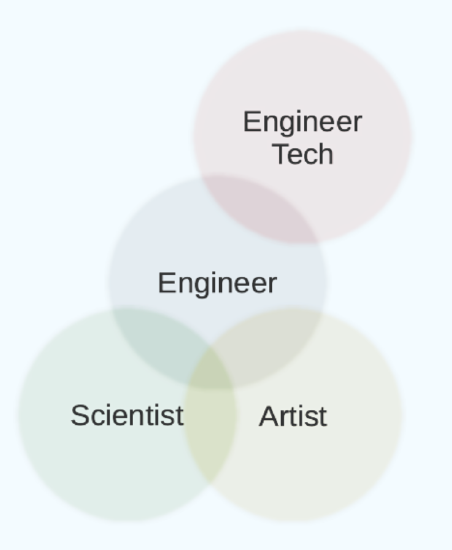
Academically how might we distinguish an engineer from say an engineering technician or a scientist? Because of varying academic standards at different colleges and university some variation might occur in the following descriptions, but in general it is what is expected from most academic programs.
- Differential Calculus
- Mathematics distributed through out courses such as linear algebra depending on discipline
- First year calculus-based chemistry ("Chemistry for Engineers")
- First year calculus-based physics
- Science (physics, chemistry, biology, geology, etc.) distributed through out courses depending on discipline
- Bachelors of Science
- PhD (rarely)
- Algebra II + Trigonometry
- Calculus I (usually for Electronic Technologists only)
- Only the science for non-scientists level core course required by most universities and colleges (these courses usually consist of teaching students to understand science for newspaper purposes)
- Associate of Science
- Bachelor of Science (not common)
- Differential Calculus (sometimes this is incorporated a specialty course like "Mathematics for Physics")
- Mathematics distributed through out courses such as linear algebra
- Chemists - Chemistry
- Physicists - Physics (first-year chemistry in a few universities and colleges)
- Biologist - Biology and Chemistry
- Geologist - Physics, chemistry, and Geology
- PhD only
Does a person really require a degree to be an engineer or scientist? Technically no, you could become an engineer by experience, though this was more true in the past than the present day. Unless you are independent it is highly unlikely anyone will hire you without the academic requirements. Question - Would you hire someone claiming to be an engineer without any academic education? Try and look at this realistically where you might have a significant number of resumes per position you are offering. How could someone who only has experience get a degree? No answer here, you should just think about it.
How many credits does someone need to be an engineer? Ok, let's get specific on the number of credits that would be required for the first two years of an engineering degree (in order to fairly compare it to an engineering technologist degree). This particular exercise does have a particular basis towards Prince George's Community College and University of Maryland College Park, though should be generally accurate for anywhere.
- Science: 15 credits (all calculus based)
- Math: 16 credits (all calculus based)
- Engineering courses: 19 credits (all calculus based)
- Liberal Arts: 15 credits (College English required, economics highly recommended)
- Total: 64 credits +
- Science: 11 credits (non-calculus based)
- Math: 11 credits (non-calculus based, though Calculus I might be required at some colleges)
- Engineering Technologist courses: 29 credits
- Liberal Arts: 9 credits (College English required)
- Total: 60 credits +
- Note: Because a scientist needs to go to graduate school this is not going to be as useful for comparison (this is just for completeness)
- Science: 15 credits (all calculus based) usually discipline specific
- Engineering courses: None (obviously), instead scientists normally take general education courses here (don't be confused though, scientists will get really hard courses...just later)
- Basically an engineer and a scientist pretty much follows similar paths
- Engineering takes a more science approach to education specifically for the purpose of designing products
- Engineering technology is more hands-on based; learning multiple techniques (a drawback of this approach is that techniques change over a lifetime; science generally changes only over generations)
- Science and Engineering are very similar for the first couple of years
In the non-academic world scientists, engineers, and engineering technologists work together very closely so the differences can become hard to distinguish. Normally a scientist does the theoretical work, the engineer does the design, and the engineering technologist does the actual work. However these lines get blurred in the "real" world where each of these three professions might be doing parts of each others jobs. Yes, scientists do solder, but definitely not as well as an engineering technologist.
Engineers can be found to be a form of translator between scientists and engineering technologists and that is one part of their job that does not get blurred in the "real" world.
Assignment: Write a small essay on what an engineer is to you with particular focus to what discipline you wish to pursue. The essay is to be written like you would for a paper in English class. That is an introduction, a body, and a conclusion. Statements made must be supported in the body of the text.
One interesting fact, and sometimes frustrating from an academic point of view, is that engineers come in many different types. Generally we refer to these as engineering disciplines very similar to scientific disciplines. You will find in most schools that science is separated into independent majors like biology, chemistry, physics, etc., however engineering is not. This give the impression to the layperson that engineering is one homogenous group. While engineering does have similar core basis like physics and chemistry (which science does as well), it has many many separate disciplines.
What are some of the engineering disciplines?
- Civil Engineering (CE - Founding Society in US - 1852; in UK - 1771, 1818)
- Mechanical Engineering (ME - Founding Society in US - 1880)
- Mining Engineering (Founding Society in US - 1871)
- Electrical Engineering (EE - Founding Society in US - 1884, 1912,1963)
- Chemical Engineering (ChemE - Founding Society in US - 1908)
- Materials Science Engineering (materials)
- Computer Engineering (branches from EE)
- Aerospace Engineering (branches from EE/ME)
- Biomolecular Engineering (branches from ChemE)
- Biological Engineering (branches from EE/ME)
- Agricultural Engineering (branches from CE)
- Environmental Engineering (branches from CE)
- Earthquake Engineering (branches from CE)
- Transportation Engineering (branches from CE)
- Geotechnical Engineering (branches from CE/Materials/Mining Engineering)
- Automotive Engineering (branches from ME)
- Naval Engineering (branches from ME)
- Ocean Engineering (branches from ME)
- Nuclear Engineering (branches from Mining Engineering)
- Optical Engineering (branches from EE)
- Petroleum Engineering (now is part of Mining Engineering)
- Metallurgical Engineering (branches from Mining Engineering)
- Paper Science Engineering (braches from ChemE)
- Sports Engineering (branches from ME)
- Motorsport Engineering (branches from ME)
- Food Engineering (branches from ChemE)
- Safety Engineering
- Music Engineering
- Geomatics Engineering (branches from CE)
- Fire Protection Engineering (branches from CE/ME/ChemE)
- NanoEngineering (branches from Materials)
- Ceramic Engineering (branches from Materials)
- Glass Science Engineering (branches from Materials)
- System Engineering (mix of all the core engineering)
- Mechtronic Engineering (mix of EE/ME/Systems - recent)
Beyond these disciplines of engineering are technical divisions within the disciplines which can added up to quite a lot of different courses. What is exciting about this is that your interest in engineering can be combined with your interests in something else (like race cars or music).
What about the money? It is important to remember that job satisfaction is more important than salary. Getting a high paying job that you don't like never turns out well. That being said the average salary of an engineer is about 50% higher than the average salary of an engineering technologist. But you should note that there can be a wide variety of salaries depending on your knowledge base and your experience so it is best to do what you like well then to do what you don't like poorly. As for scientist, nobody becomes a scientist for money it is too underpaid for the work you have to do.
What about stability in the sense that I can be in the field my entire life if I choose? In this case it is well established that engineering is the most stable job. Engineers learn a more general theory of engineering that is easily adaptable to changing practices where as an engineering technologist learns specific practices and devices that can change over time. This can lead to an engineering technologist becoming obsolete without retraining. Fortunately there are many community colleges that offer this retraining, but it could mean starting a career essentially all over again at a starting salary level. As for scientists, it depends on the mood of the world during Luddite times it is not so good, during techophile times it is good. Interesting the times don't generally affect engineers or engineering technologists.
So an engineer is everything and must know everything? Mostly correct. An engineer should be well educated in science, mathematics, and practically everything. But obviously nobody can know everything, so again mostly correct. ;)
That is engineering in a nutshell...
The next step is to learn about computers and computer programming. We will come back to the integral engineering picture later but many tasks that will be done coming up will require a knowledge of computing.
Student questions:
What are your chances of acceptance?
Calculate for all schools, your chance of acceptance.
Your chancing factors
Extracurriculars.
College Essay Tips for Software Engineering Programs
This article was written based on the information and opinions presented by Hale Jaeger in a CollegeVine livestream. You can watch the full livestream for more info.
What’s Covered:
“why this . . .” essays for software engineering, writing your essay.
For many college applications, you’ll write essays in addition to the Common App personal statement . These prompts will often ask you about what you’re planning on pursuing at the college. This article will give you practical advice for explaining your interest in software engineering.
Many supplemental essay prompts are quite common, such as “ Why this major? ” and “ Why this school? ” If you’re sure about pursuing software engineering and know which college you want to kick off your career at, you should already know the answers to these questions.
Certain schools have strong software engineering and computer science programs. If this is the case for your chosen college, it should be easy for you to say that you can identify with their program. You can add that you’re excited to use the specific resources there and how they will help you reach your goal of becoming a software engineer.
When talking about your major, bring up what attracts you to the field. Your eventual salary and career prospects are incentives, but you want to explain what specifically about the study of computer science and engineering makes you excited. Why do you like to learn about it? Maybe you’re fascinated by the inner workings of technology. Perhaps you’re interested in how specific tools on certain websites work. It’s also possible that you want to improve user experience and innovate existing software.
These reasons are a bit less shallow than money. They also get to the heart of why you want to pursue software engineering: you like to build things and solve problems.
From Abstract to Specific
In general, when writing your essays, you should work on funneling these types of ideas about your major from the abstract to the specific. You can open with a particular anecdote or story to catch the reader’s attention, of course, but try to start with high-level interests. Fundamental things like identifying the inner workings of a website can lead to more niche topics.
Personal Experiences
When writing your essays, make sure you touch on any personal experiences that can help show why this subject is your passion. It can all add to the personal narrative that you’ve been building in your entire application and help make the admissions officers understand you better.
If you had an experience with technology that fascinated you, drew you into the subject, and made you want to learn more, then include that. Be sure to add the important details so the reader can get a good sense of the scene. Another way to go is if you had the opposite experience: you encountered a frustrating piece of technology and were desperate to figure out how to get it working. You realized that you wanted to go into the field to improve software and make people’s lives easier. You can try writing about your interests that way.
Another way to write your essay is to back up an explanation of your passions with a personal story that will make your essay compelling. Try to draw on an anecdote, and if possible, explain what you’ve accomplished after your initial interest was sparked.
How did you get involved in coding? If you found technology that was glitching all the time or something that excited you, did this inspire you to figure out how it all worked? Write about how you’ve developed your skills in coding and science and how much you’ve learned about good systems and malfunctioning systems. Then, write about what you want to accomplish and innovate in the field.
Plans for the Future
When you’ve discussed the past and present, you can begin to probe the future. For the sake of narrative, try to include how you’ve grown and what your ultimate ambitions are. If you’re not sure exactly what branch of software engineering you want to go into, that’s fine. You can name a few options, such as game design or mobile design, or you can just talk about how you want to build things and make better technology to improve people’s lives.
When you’re talking about personal things, you should aim to be specific. Draw on stories when you can, and be honest about what interests you about this subject and what you want to do in the field. This is your chance to explore why you’re looking to go into software engineering, so you should come away from these essays feeling much more confident about your planned course of study.
Related CollegeVine Blog Posts

In an essay, you will write about a topic in depth, presenting a clear argument which leads logically to your conclusions. You will need to provide evidence from academic sources to support your argument.
Most essays are written in response to a specific question set by a lecturer but you will sometimes have a choice of questions or an element of choice within the question.
Assessment criteria
It is always a good idea to look at the criteria that will be used to assess your essay. There is no one standard set of criteria but lecturers will usually be looking for evidence of the following:
- Wide, relevant reading
- Addressing the question / task set
- Analytical ability
- Well-constructed argument
- Use of relevant examples / evidence
- Clarity of expression
- Appropriate and accurate referencing
The more detailed structure of an essay will depend on the question that is being answered. However, for all essays you should:
Analysing the question
In this video, Professor John Preston explains how to approach an engineering essay. He discusses an essay entitled , 'For local bus services, what are the appropriate levels of regulation and the appropriate forms of competition and ownership? Justify your answer with reference to theoretical and practical evidence both from Great Britain and elsewhere', and points out that there are 9 things you need to include in your analysis in order to fully answer the question .
Read a wide range of academic sources including books, journals and reports. Identify evidence you can use to support your ideas, but don’t ignore evidence that contradicts them; you may need to rethink your argument.
Once you have analysed the question and read widely, you should have a clear idea what your main argument will be. Now write an outline of your essay consisting of the topic sentence (main idea) of each paragraph and the evidence you will use to support this assertion.
Other University of Southampton sites
- English Language Support Classes
- Study Skills
Links to external websites
- Writing for Assignments E-library
- Critical Thinking and Reflection
- Essay Writing
The University cannot accept responsibility for external websites.
An essay is a story, a story that needs to be substantiated with evidence from the academic literature, for example, books and journal papers.
Don't start writing until you have:
analysed the essay question
read widely about all aspects of it
planned your response.
Essays on Engineering
Faq about engineering.
Thriving in Mechanical Engineering: Embracing Resilience and Flexibility
This essay about navigating challenges in mechanical engineering emphasizes the importance of resilience and adaptability. It explores how these qualities enable engineers to overcome setbacks, embrace change, and innovate creatively. Through resilience, engineers persevere in the face of failures, while adaptability ensures they stay relevant in a rapidly evolving field. Creativity serves as a catalyst for finding unconventional solutions, while collaboration fosters collective learning and innovation. Ultimately, resilience and adaptability are portrayed as indispensable virtues that empower engineers to thrive amidst the complexities of mechanical engineering, leaving a lasting impact on the field.
How it works
In the vast expanse of mechanical engineering, where innovation is the currency and problem-solving is the daily bread, triumphing over challenges is an art mastered by those who wield the twin swords of resilience and adaptability. This field is akin to a labyrinth, where each turn presents a new puzzle demanding solution. However, amidst this maze of complexities, it’s not merely technical prowess that sets the trailblazers apart, but rather their ability to bend but not break, to pivot when necessary, and to emerge stronger from the crucible of adversity.
Resilience, the cornerstone of success in any field, holds particular significance in the realm of mechanical engineering. It’s the sturdy backbone that bears the weight of failures and setbacks without faltering. Picture a towering oak tree, weathering the fiercest storms while standing tall. Likewise, resilient engineers confront design flaws, manufacturing mishaps, and logistical nightmares with unwavering determination. Each setback becomes a stepping stone, propelling them closer to their ultimate goal. It’s not about avoiding failure but embracing it as an inevitable companion on the journey toward excellence.
Adaptability, the sister virtue to resilience, is equally indispensable in the arsenal of a mechanical engineer. Imagine a chameleon, seamlessly blending into its ever-changing environment. Similarly, engineers must adapt to the shifting sands of technology, methodology, and market demands. What was cutting-edge yesterday may be obsolete tomorrow, demanding constant evolution and innovation. Whether it’s mastering new software, embracing disruptive technologies like 3D printing, or pivoting to meet emerging consumer needs, adaptability ensures engineers remain relevant and responsive in a rapidly evolving landscape.
Creativity, the spark that ignites innovation, flourishes in the fertile soil of resilience and adaptability. Think of it as the architect’s blueprint, transforming imagination into tangible reality. Mechanical engineering challenges demand more than textbook solutions; they require ingenuity, lateral thinking, and the audacity to defy convention. Whether it’s devising novel design approaches, exploring unconventional materials, or revolutionizing manufacturing processes, creativity serves as the compass guiding engineers through uncharted territory.
Collaboration, the secret ingredient of success, thrives in the ecosystem nurtured by resilience and adaptability. Picture a symphony orchestra, each instrument contributing its unique melody to create a harmonious masterpiece. Similarly, engineers collaborate, pooling their diverse skills, perspectives, and experiences to tackle complex challenges collectively. Collaboration fosters a culture of shared learning, where ideas are exchanged freely, feedback is welcomed, and innovation flourishes. Together, engineers form a formidable force, capable of surmounting even the most daunting obstacles with grace and efficiency.
In essence, resilience and adaptability are not just virtues but survival strategies in the dynamic world of mechanical engineering. They empower engineers to navigate treacherous waters with confidence, to weather storms with grace, and to emerge victorious against all odds. As the field continues to evolve, those who embody these qualities will not merely survive but thrive, leaving an indelible mark on the landscape of mechanical engineering for generations to come.
Cite this page
Thriving in Mechanical Engineering: Embracing Resilience and Flexibility. (2024, Mar 18). Retrieved from https://papersowl.com/examples/thriving-in-mechanical-engineering-embracing-resilience-and-flexibility/
"Thriving in Mechanical Engineering: Embracing Resilience and Flexibility." PapersOwl.com , 18 Mar 2024, https://papersowl.com/examples/thriving-in-mechanical-engineering-embracing-resilience-and-flexibility/
PapersOwl.com. (2024). Thriving in Mechanical Engineering: Embracing Resilience and Flexibility . [Online]. Available at: https://papersowl.com/examples/thriving-in-mechanical-engineering-embracing-resilience-and-flexibility/ [Accessed: 12 Apr. 2024]
"Thriving in Mechanical Engineering: Embracing Resilience and Flexibility." PapersOwl.com, Mar 18, 2024. Accessed April 12, 2024. https://papersowl.com/examples/thriving-in-mechanical-engineering-embracing-resilience-and-flexibility/
"Thriving in Mechanical Engineering: Embracing Resilience and Flexibility," PapersOwl.com , 18-Mar-2024. [Online]. Available: https://papersowl.com/examples/thriving-in-mechanical-engineering-embracing-resilience-and-flexibility/. [Accessed: 12-Apr-2024]
PapersOwl.com. (2024). Thriving in Mechanical Engineering: Embracing Resilience and Flexibility . [Online]. Available at: https://papersowl.com/examples/thriving-in-mechanical-engineering-embracing-resilience-and-flexibility/ [Accessed: 12-Apr-2024]
Don't let plagiarism ruin your grade
Hire a writer to get a unique paper crafted to your needs.

Our writers will help you fix any mistakes and get an A+!
Please check your inbox.
You can order an original essay written according to your instructions.
Trusted by over 1 million students worldwide
1. Tell Us Your Requirements
2. Pick your perfect writer
3. Get Your Paper and Pay
Hi! I'm Amy, your personal assistant!
Don't know where to start? Give me your paper requirements and I connect you to an academic expert.
short deadlines
100% Plagiarism-Free
Certified writers
Thank you for visiting nature.com. You are using a browser version with limited support for CSS. To obtain the best experience, we recommend you use a more up to date browser (or turn off compatibility mode in Internet Explorer). In the meantime, to ensure continued support, we are displaying the site without styles and JavaScript.
- View all journals
- Explore content
- About the journal
- Publish with us
- Sign up for alerts
Collection 12 March 2023
Top 100 in Engineering - 2022
This collection highlights our most downloaded* engineering papers published in 2022. Featuring authors from around the world, these papers showcase valuable research from an international community.
You can also view the top papers across various subject areas here .
*Data obtained from SN Insights, which is based on Digital Science's Dimensions.
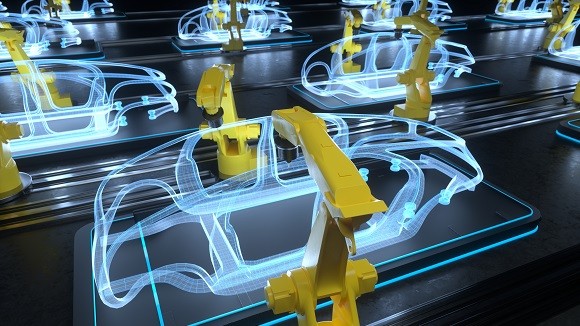
Generation mechanism and prediction of an observed extreme rogue wave
- Johannes Gemmrich
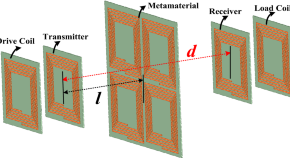
Wireless power transfer system with enhanced efficiency by using frequency reconfigurable metamaterial
- Dongyong Shan
- Haiyue Wang
- Junhua Zhang
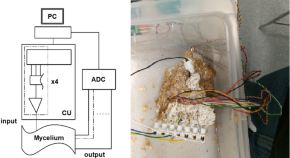
Mining logical circuits in fungi
- Nic Roberts
- Andrew Adamatzky
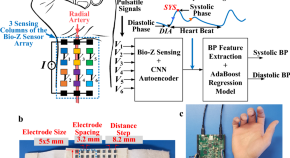
Cuffless blood pressure monitoring from a wristband with calibration-free algorithms for sensing location based on bio-impedance sensor array and autoencoder
- Bassem Ibrahim
- Roozbeh Jafari

The footprint of ship anchoring on the seafloor
- Sally J. Watson
- Geoffroy Lamarche
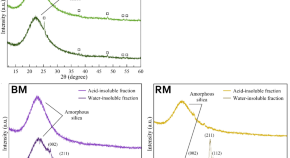
Dental tissue remineralization by bioactive calcium phosphate nanoparticles formulations
- Andrei Cristian Ionescu
- Lorenzo Degli Esposti
- Eugenio Brambilla

Neuromorphic chip integrated with a large-scale integration circuit and amorphous-metal-oxide semiconductor thin-film synapse devices
- Mutsumi Kimura
- Yuki Shibayama
- Yasuhiko Nakashima

Near-infrared photoluminescence of Portland cement
- Sergei M. Bachilo
- R. Bruce Weisman

Investigating physical and mechanical properties of nest soils used by mud dauber wasps from a geotechnical engineering perspective
- Joon S. Park
- Noura S. Saleh
- Nathan P. Lord
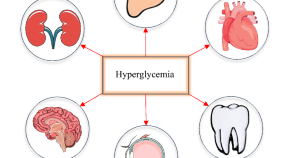
Control of blood glucose induced by meals for type-1 diabetics using an adaptive backstepping algorithm
- Rasoul Zahedifar
- Ali Keymasi Khalaji
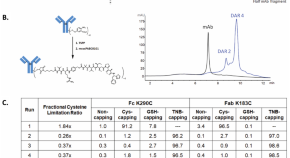
Cysteine metabolic engineering and selective disulfide reduction produce superior antibody-drug-conjugates
- Renée Procopio-Melino
- Frank W. Kotch
- Xiaotian Zhong
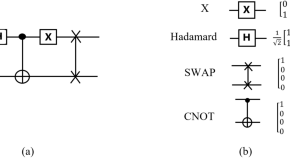
An optimizing method for performance and resource utilization in quantum machine learning circuits
- Tahereh Salehi
- Mariam Zomorodi
- Vahid Salari
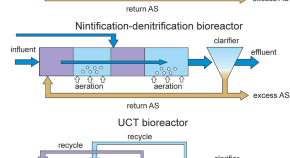
The structure of microbial communities of activated sludge of large-scale wastewater treatment plants in the city of Moscow
- Shahjahon Begmatov
- Alexander G. Dorofeev
- Andrey V. Mardanov
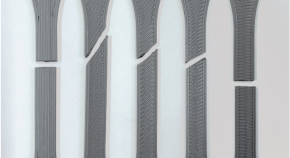
Characterization of 3D-printed PLA parts with different raster orientations and printing speeds
- Mohammad Reza Khosravani
- Filippo Berto
- Tamara Reinicke

Hard polymeric porous microneedles on stretchable substrate for transdermal drug delivery
- Aydin Sadeqi
- Sameer Sonkusale
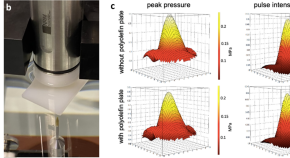
Ultrasounds induce blood–brain barrier opening across a sonolucent polyolefin plate in an in vitro isolated brain preparation
- Laura Librizzi
- Francesco Prada
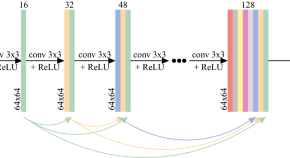
Deep learning-based single image super-resolution for low-field MR brain images
- M. L. de Leeuw den Bouter
- G. Ippolito
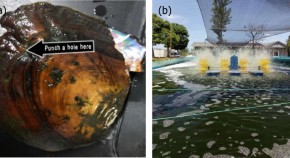
Effective treatment of aquaculture wastewater with mussel/microalgae/bacteria complex ecosystem: a pilot study
- Yongchao Li
- Weifeng Guo

Ultrasound-guided femoral approach for coronary angiography and interventions in the porcine model
- Grigorios Tsigkas
- Georgios Vasilagkos
- Periklis Davlouros

Epidural anesthesia needle guidance by forward-view endoscopic optical coherence tomography and deep learning
- Qinggong Tang
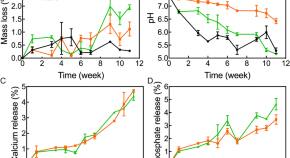
PLA/Hydroxyapatite scaffolds exhibit in vitro immunological inertness and promote robust osteogenic differentiation of human mesenchymal stem cells without osteogenic stimuli
- Marcela P. Bernardo
- Bruna C. R. da Silva
- Antonio Sechi


Atrial fibrillation prediction by combining ECG markers and CMR radiomics
- Esmeralda Ruiz Pujadas
- Zahra Raisi-Estabragh
- Karim Lekadir
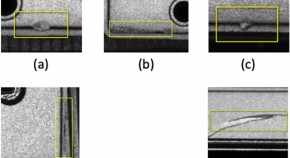
Small object detection method with shallow feature fusion network for chip surface defect detection
- Haixin Huang
- Xueduo Tang
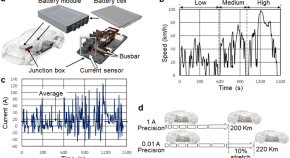
High-precision robust monitoring of charge/discharge current over a wide dynamic range for electric vehicle batteries using diamond quantum sensors
- Yuji Hatano
- Jaewon Shin
- Mutsuko Hatano
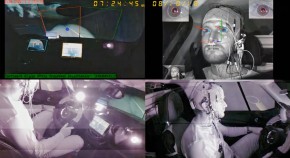
Driver drowsiness estimation using EEG signals with a dynamical encoder–decoder modeling framework
- Sadegh Arefnezhad
- James Hamet
- Ali Yousefi
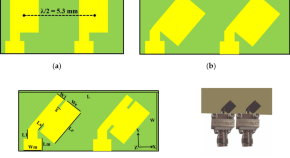
A compact two elements MIMO antenna for 5G communication
- Ashfaq Ahmad
- Dong-you Choi
- Sadiq Ullah
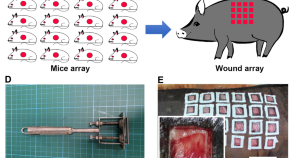
Skin wound healing assessment via an optimized wound array model in miniature pigs
- Ting-Yung Kuo
- Chao-Cheng Huang
- Lynn L. H. Huang
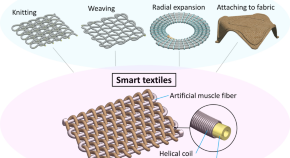
Smart textiles using fluid-driven artificial muscle fibers
- Phuoc Thien Phan
- Mai Thanh Thai
- Thanh Nho Do
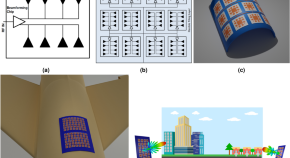
Tile-based massively scalable MIMO and phased arrays for 5G/B5G-enabled smart skins and reconfigurable intelligent surfaces
- Manos M. Tentzeris
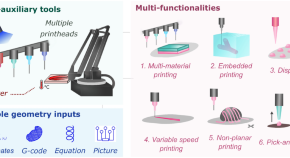
A hackable, multi-functional, and modular extrusion 3D printer for soft materials
- Iek Man Lei
- Yan Yan Shery Huang
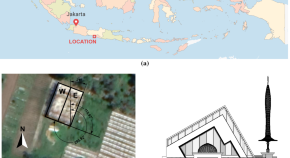
Techno-economic analysis of rooftop solar power plant implementation and policy on mosques: an Indonesian case study
- Fadhil Ahmad Qamar

Seismic wave simulation using a 3D printed model of the Los Angeles Basin
- Sunyoung Park
- Changsoo Shin
- Robert W. Clayton
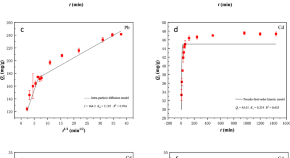
Banana stem and leaf biochar as an effective adsorbent for cadmium and lead in aqueous solution
- Gaoxiang Li
- Xinxian Long
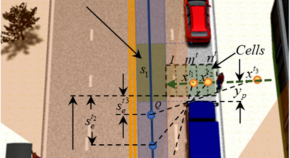
Potential risk assessment for safe driving of autonomous vehicles under occluded vision
- Denggui Wang
- Jincao Zhou
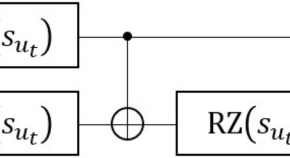
Natural quantum reservoir computing for temporal information processing
- Yudai Suzuki
- Naoki Yamamoto
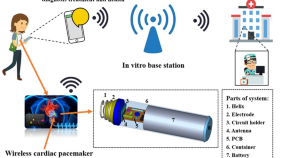
A compact and miniaturized implantable antenna for ISM band in wireless cardiac pacemaker system
- Li Gaosheng
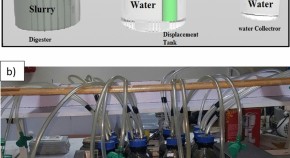
Experimental and simulation analysis of biogas production from beverage wastewater sludge for electricity generation
- Anteneh Admasu
- Wondwossen Bogale
- Yedilfana Setarge Mekonnen
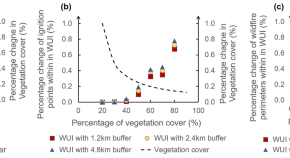
Mapping the wildland-urban interface in California using remote sensing data
- Tirtha Banerjee
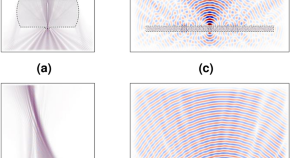
Design and implementation of a terahertz lens-antenna for a photonic integrated circuits based THz systems
- Shihab Al-Daffaie
- Alaa Jabbar Jumaah
- Thomas Kusserow
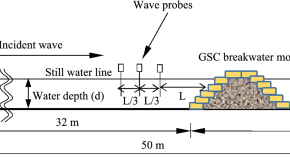
Preliminary investigation on stability and hydraulic performance of geotextile sand container breakwaters filled with sand and cement
- Kiran G. Shirlal
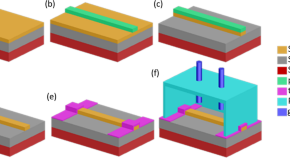
Detection of volatile organic compounds using mid-infrared silicon nitride waveguide sensors
- Junchao Zhou
- Diana Al Husseini
- Pao Tai Lin
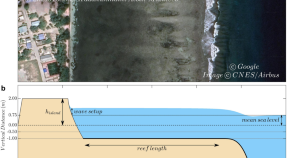
Coastal flooding and mean sea-level rise allowances in atoll island
- Angel Amores
- Marta Marcos
- Jochen Hinkel

Integration of life cycle assessment and life cycle costing for the eco-design of rubber products
- Yahong Dong
- Yating Zhao
- Guangyi Lin

Estimating mangrove forest gross primary production by quantifying environmental stressors in the coastal area
- Yuhan Zheng
- Wataru Takeuchi
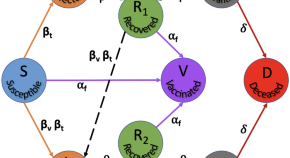
COVID-19 waves: variant dynamics and control
- Abhishek Dutta

Increased flooded area and exposure in the White Volta river basin in Western Africa, identified from multi-source remote sensing data
- Chengxiu Li
- Jadunandan Dash
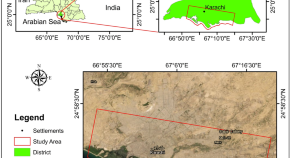
Sentinel-1A for monitoring land subsidence of coastal city of Pakistan using Persistent Scatterers In-SAR technique
- Muhammad Afaq Hussain
- Zhanlong Chen
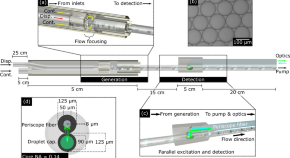
A Lab-in-a-Fiber optofluidic device using droplet microfluidics and laser-induced fluorescence for virus detection
- Helen E. Parker
- Sanghamitra Sengupta
- Fredrik Laurell

Transplantation of 3D adipose-derived stem cell/hepatocyte spheroids alleviates chronic hepatic damage in a rat model of thioacetamide-induced liver cirrhosis
- Yu Chiuan Wu
- Guan Xuan Wu
- Shyh Ming Kuo

Hidden costs to building foundations due to sea level rise in a changing climate
- Mohamed A. Abdelhafez
- Bruce Ellingwood
- Hussam Mahmoud

Mapping native and non-native vegetation in the Brazilian Cerrado using freely available satellite products
- Kennedy Lewis
- Fernanda de V. Barros
- Lucy Rowland
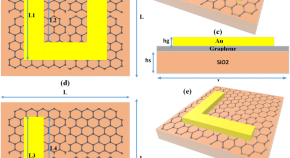
Graphene-based metasurface solar absorber design with absorption prediction using machine learning
- Juveriya Parmar
- Shobhit K. Patel
- Vijay Katkar
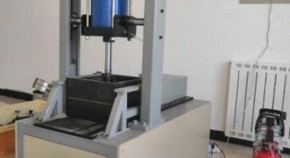
Experimental study of reasonable mesh size of geogrid reinforced tailings
- Lidong Liang

Stromal-vascular fraction and adipose-derived stem cell therapies improve cartilage regeneration in osteoarthritis-induced rats
- Wan-Ting Yang
- Chun-Yen Ke
- Ru-Ping Lee
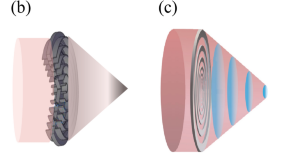
Planar ultrasonic transducer based on a metasurface piezoelectric ring array for subwavelength acoustic focusing in water
- Hyunggyu Choi
- Yong Tae Kim

Sample-efficient parameter exploration of the powder film drying process using experiment-based Bayesian optimization
- Kohei Nagai
- Takayuki Osa
- Keisuke Nagato
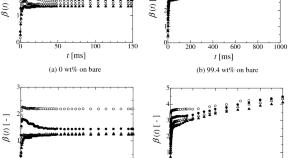
Predicting the splash of a droplet impinging on solid substrates
- Yukihiro Yonemoto
- Kanta Tashiro
- Tomoaki Kunugi
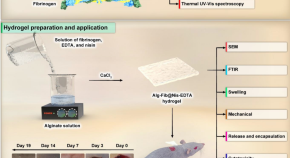
Designing a new alginate-fibrinogen biomaterial composite hydrogel for wound healing
- Marjan Soleimanpour
- Samaneh Sadat Mirhaji
- Ali Akbar Saboury
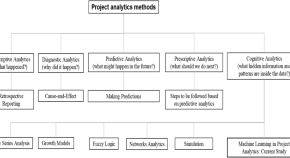
Machine learning in project analytics: a data-driven framework and case study
- Shahadat Uddin
- Stephen Ong

Multi-state MRAM cells for hardware neuromorphic computing
- Piotr Rzeszut
- Jakub Chȩciński
- Tomasz Stobiecki
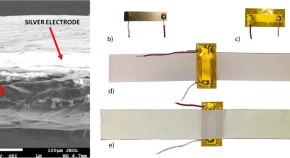
Flexible, self-powered sensors for estimating human head kinematics relevant to concussions
- Henry Dsouza
- Juan Pastrana
- Nelson Sepúlveda
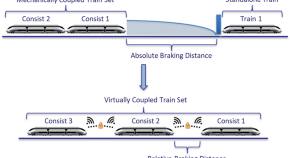
Technical feasibility analysis and introduction strategy of the virtually coupled train set concept
- Sebastian Stickel
- Moritz Schenker
- Javier Goikoetxea
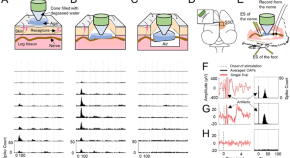
Ultrasound does not activate but can inhibit in vivo mammalian nerves across a wide range of parameters
- Hongsun Guo
- Sarah J. Offutt
- Hubert H. Lim

Iron oxide nanoflowers encapsulated in thermosensitive fluorescent liposomes for hyperthermia treatment of lung adenocarcinoma
- Maria Theodosiou
- Elias Sakellis
- Eleni Efthimiadou

Piezoelectric energy harvester with double cantilever beam undergoing coupled bending-torsion vibrations by width-splitting method
- Jiawen Song
- Guihong Sun
- Xuejun Zheng

Laser slice thinning of GaN-on-GaN high electron mobility transistors
- Atsushi Tanaka
- Ryuji Sugiura
- Hiroshi Amano
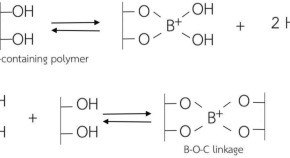
Superabsorbent cellulose-based hydrogels cross-liked with borax
- Supachok Tanpichai
- Farin Phoothong
- Anyaporn Boonmahitthisud
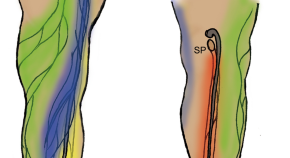
A new severity classification of lower limb secondary lymphedema based on lymphatic pathway defects in an indocyanine green fluorescent lymphography study
- Akira Shinaoka
- Kazuyo Kamiyama
- Yoshihiro Kimata
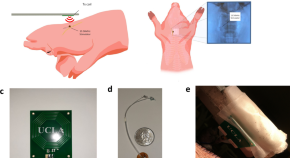
Vagus nerve stimulation using a miniaturized wirelessly powered stimulator in pigs
- Iman Habibagahi
- Mahmoud Omidbeigi
- Aydin Babakhani
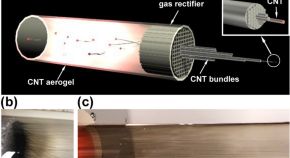
One step fabrication of aligned carbon nanotubes using gas rectifier
- Toshihiko Fujimori
- Daiji Yamashita
- Jun-ichi Fujita
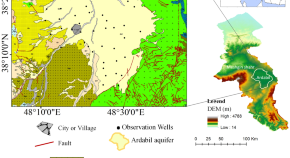
Use of InSAR data for measuring land subsidence induced by groundwater withdrawal and climate change in Ardabil Plain, Iran
- Zahra Ghorbani
- Ali Khosravi
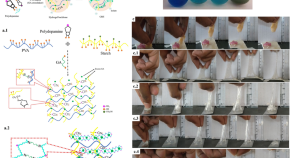
Bioinspired gelatin based sticky hydrogel for diverse surfaces in burn wound care
- Benu George
- Nitish Bhatia
- Suchithra T. V.
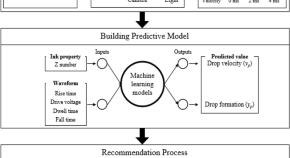
The design of an inkjet drive waveform using machine learning
- Seongju Kim
- Sungjune Jung
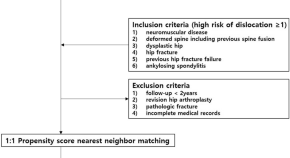
The usefulness of dual mobility cups in primary total hip arthroplasty patients at a risk of dislocation
- Nam Hoon Moon
- Won Chul Shin

Phenomic data-facilitated rust and senescence prediction in maize using machine learning algorithms
- Aaron J. DeSalvio
- Thomas Isakeit
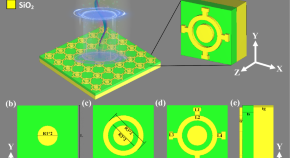
Polarization and angular insensitive bendable metamaterial absorber for UV to NIR range
- Md Mizan Kabir Shuvo
- Md Imran Hossain
- Mohammad Tariqul Islam
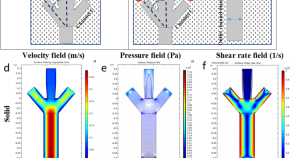
Numerical analysis on the effects of microfluidic-based bioprinting parameters on the microfiber geometrical outcomes
- Ahmadreza Zaeri
- Robert C. Chang
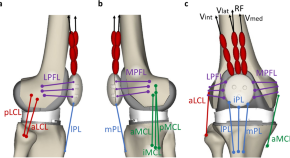
Kinematics and kinetics comparison of ultra-congruent versus medial-pivot designs for total knee arthroplasty by multibody analysis
- Giovanni Putame
- Mara Terzini
- Cristina Bignardi
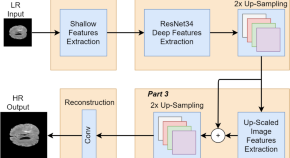
A new generative adversarial network for medical images super resolution
- Waqar Ahmad
- Shoaib Azmat

Reliable P wave detection in pathological ECG signals
- Lucie Saclova
- Andrea Nemcova
- Marina Ronzhina

Gain and isolation enhancement of a wideband MIMO antenna using metasurface for 5G sub-6 GHz communication systems
- Md. Mhedi Hasan
- Md. Shabiul Islam
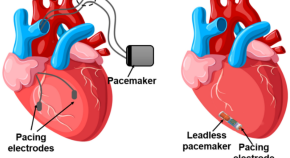
Design and implementation of compact dual-band conformal antenna for leadless cardiac pacemaker system
- Deepti Sharma
- Binod Kumar Kanaujia
- Ladislau Matekovits
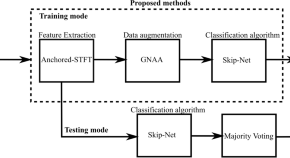
Enhancing the decoding accuracy of EEG signals by the introduction of anchored-STFT and adversarial data augmentation method
- Muhammad Saif-ur-Rehman
- Christian Klaes
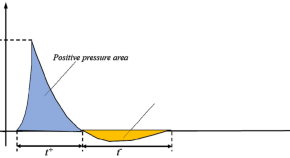
Propagation rules of shock waves in confined space under different initial pressure environments
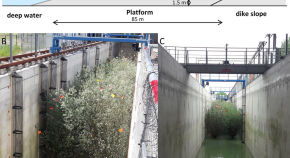
Wave attenuation through forests under extreme conditions
- Bregje K. van Wesenbeeck
- Guido Wolters
- Tjeerd J. Bouma
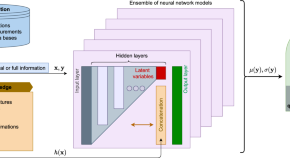
Multi-fidelity information fusion with concatenated neural networks
- Suraj Pawar
- Trond Kvamsdal
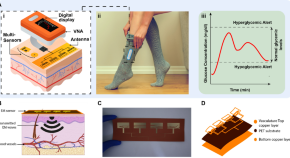
Wearable flexible body matched electromagnetic sensors for personalized non-invasive glucose monitoring
- Jessica Hanna
- Youssef Tawk
- Assaad A. Eid
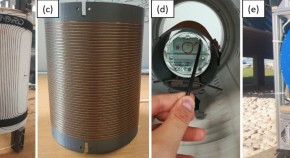
Portable magnetic resonance imaging of patients indoors, outdoors and at home
- Teresa Guallart-Naval
- José M. Algarín
- Joseba Alonso
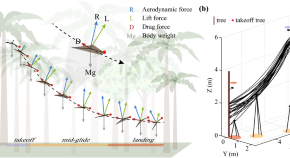
Combined effects of body posture and three-dimensional wing shape enable efficient gliding in flying lizards
- Pranav C. Khandelwal
- Tyson L. Hedrick
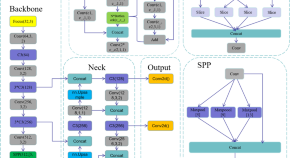
Road damage detection algorithm for improved YOLOv5
- Zhenyu Zhang
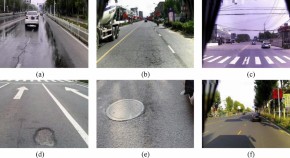
A pavement distresses identification method optimized for YOLOv5s
- Sudong Wang

Regeneration of collagen fibrils at the papillary dermis by reconstructing basement membrane at the dermal–epidermal junction
- Shunsuke Iriyama
- Satoshi Amano
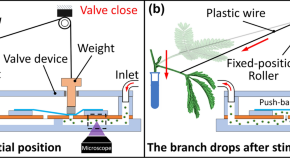
Bio-actuated microvalve in microfluidics using sensing and actuating function of Mimosa pudica
- Yusufu Aishan
- Shun-ichi Funano
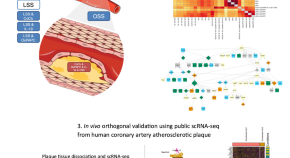
Uncovering emergent phenotypes in endothelial cells by clustering of surrogates of cardiovascular risk factors
- Iguaracy Pinheiro-de-Sousa
- Miriam H. Fonseca-Alaniz
- Jose E. Krieger
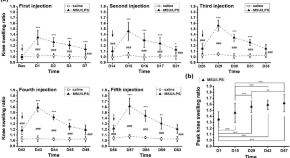
Degenerative joint disease induced by repeated intra-articular injections of monosodium urate crystals in rats as investigated by translational imaging
- Nathalie Accart
- Janet Dawson
- Nicolau Beckmann
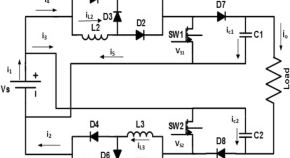
High gain DC/DC converter with continuous input current for renewable energy applications
- Arafa S. Mansour
- AL-Hassan H. Amer
- Mohamed S. Zaky
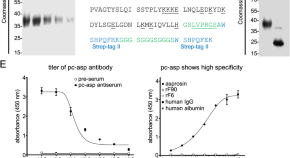
Sensitive asprosin detection in clinical samples reveals serum/saliva correlation and indicates cartilage as source for serum asprosin
- Yousef A. T. Morcos
- Steffen Lütke
- Gerhard Sengle
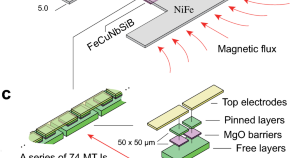
Scalp attached tangential magnetoencephalography using tunnel magneto-resistive sensors
- Akitake Kanno
- Nobukazu Nakasato
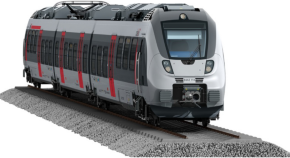
3D modelling and simulation of the dispersion of droplets and drops carrying the SARS-CoV-2 virus in a railway transport coach
- Patrick Armand
- Jérémie Tâche
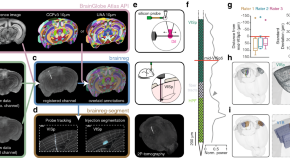
Accurate determination of marker location within whole-brain microscopy images
- Adam L. Tyson
- Mateo Vélez-Fort
- Troy W. Margrie
Quick links
- Explore articles by subject
- Guide to authors
- Editorial policies
The Code of Ethics for Engineers Essay
One of the main conditions of the modern society’s successful development is its dependence on the moral principles and canons which are worked out and accepted by the society in order to regulate the character of relations within it. Moral principles belong to the field of ethics which influences all the aspects of the people’s life.
Thus, people are oriented to following the moral norms which are developed to control the elements of their personal life and interpersonal relations, and there are also moral codes and canons which can be successfully used for realizing business activities and business relations.
These principles are in the field of the business ethics. Moreover, each profession has its own code of ethics according to which the relations within the definite industry or company are realized. It is important that the codes of ethics for different professions as the aspects of the people’s life depend on the traditional approaches to moral norms and principles which were argued by such philosophers as Aristotle, Kant, and Bentham.
Thus, the canons, rules of practice, and professional obligations for engineers are based on the elements of the ethics developed by these philosophers in the context of the person’s voluntary nature to perform this or that action, with dependence on his or her moral duty for this action, or on discussing this action according to its right or wrong consequences.
It is stated in the preamble to the code of ethics for engineers that “the services provided by engineers require honesty, impartiality, fairness, and equity, and must be dedicated to the protection of the public health, safety, and welfare” (“NSPE Code of Ethics”). Thus, the activity of engineers as professionals is oriented to those moral concepts which are also accentuated as influential ones in the persons’ everyday life.
Furthermore, these concepts are also associated with the group of moral virtues such as truthfulness, forgiveness, and integrity which were determined by Aristotle. Shrader-Frechette indicates with references to Aristotle that “one can deliberate only about what is within one’s power to do” (Shrader-Frechette 187).
That is why engineers should focus on their specific responsibilities with paying attention to their code of ethics which regulates the moral aspect of the relations between the employers, employees, partners, and clients.
The code of ethics for engineers is based on a range of the fundamental canons in relation to which the rules of practice and professional obligations are stated. Thus, engineers should “hold paramount the safety, health, and welfare of the public” (“NSPE Code of Ethics”).
That is why engineers should orient to the necessities of the public, and one of the engineers’ professional obligations is based on this principle, and it is formulated in such a way that “engineers shall at all times strive to serve the public interest” (“NSPE Code of Ethics”).
In this case, Bentham’s ideas about the benefits of the actions are met, and Kant’s categories of the universal law and the moral duty are realized according to which a person uses his or her will and control the actions in order to address the interests of the society (Birks; Velasquez).
These notions are addressed in the context of engineers’ rules of practice in which the main accents are made on the justice, legitimacy, and truthfulness. The mentioned principles are also associated with the canon according to which engineers should “issue public statements only in an objective and truthful manner” (“NSPE Code of Ethics”).
Thus, objectivity and truthfulness as the representations of Aristotle’s moral virtues become the main aspects of the positive atmosphere of the professional communication.
One of the rules of practice for engineers states that they “shall perform services only in the areas of their competence” (“NSPE Code of Ethics”). Why is this rule so significant with references to the ethical canons? A person should be always responsible for his or her actions.
The person’s actions should be supported by the sincere desire of realizing the good action and motivation to do it in relation to the highest good to which it is aimed. Thus, Aristotle indicates that there are many goods which depend not only on the virtues and the balance between the extremes but also on the human voluntary nature and the person’s intention to reach the happiness in the life (Curzer).
If Aristotle accentuates the human voluntary nature, Bentham develops this notion and indicates that people in their actions should orient to the benefits which could satisfy a number of persons. That is why these actions should be not only good but also competent.
Moreover, the person’s actions should be so good that they could be perceived as addressed to the universal laws and that is why, according to Kant, they should form the categorical imperative. Thus, not to make harm to those people who are involved in the process, engineers should be competent in their actions and be responsible for their performing.
Engineers’ professional obligations also include such a point according to which engineers should “adhere to the principles of sustainable development in order to protect the environment for future generations” (“NSPE Code of Ethics”).
The problem of the technological sustainability is closely connected with the possible technological risks which can be the results of the industry’s activity. Shrader-Frechette argues the fringe between the advantages of those technologies which are risky and the moral obligation of those persons who are involved in their producing (Shrader-Frechette).
If the person’s moral task is to orient to the benefits for the people, is it possible to realize the hazardous technologies which can be harmful for the public and nature?
According to the ideas of Utilitarianism, these technologies have both the right and wrong consequences for various people and different aspects of life (Birks). However, according to Kant’s principles such a situation is morally wrong because it is not universally good (Velasquez).
To present the universally good actions, a person should not be influenced by any other opinions or visions of this or that issue. From this point, Aristotle emphasizes the necessity of the personal self-control and liberality as one of the influential virtues (Curzer).
To be satisfied and happy without the inclination to experience the impact of the other people’s ideas on the morality, an individual should be independent and should not concentrate on his or her financial state and as a result, betray the moral principles. However, one of the main risks for the person is the orientation to the pleasure which is accentuated as an important concept by Aristotle and Bentham.
People can also strive to reach the pleasure with references to immoral or wrong actions. That is why it is mentioned in the list of the engineers’ professional obligations that they “shall not be influenced in their professional duties by conflicting interests” (“NSPE Code of Ethics”). This obligation is associated with the problem of the person’s moral choice.
In spite of the fact the majority of people are inclined to admit the necessity of following the life according to the moral virtues proclaimed by Aristotle and according to the principles stated by Kant and Bentham, a person always tries to find the most beneficial approach for his or her, and this approach can be based on any bad factors which can lead to the negative consequences.
Thus, the origins of the person’s morality and the person’s own code of ethics are in his voluntary nature which forms motivation and in his will and duty. To follow the universal moral laws or live according to the moral virtues are not an easy task, but according to the philosophers, it is a single way to the happy life full of pleasures which is in harmony with the laws of nature.
That is why people develop the codes of ethics in relation to which it is possible to regulate the aspects of life in society and also use these principles in the organization of their professional activity.
Any company functions as a group of people which are in constant relations, and to guarantee the development of the company with a minimum of negative and conflict situations, it is necessary to work out the code of ethics according to which the interactions are regulated and controlled.
Moreover, many professions have their specific features which should be also reflected in the code. That is why the code of ethics for engineers which depends on the main moral principles is significant for the profession’s development.
Works Cited
Birks, Thomas Rawson. Modern Utilitarianism; or, the Systems of Paley, Bentham, and Mill Examined and Compared . USA: Nabu Press, 2010. Print.
Curzer, Howard. Aristotle and the virtues . USA: Oxford University Press, 2012. Print.
NSPE Code of Ethics for Engineers 2006. Web. <www.onlineethics.org/Resources/ethcodes/EnglishCodes/9972.aspx>.
Shrader-Frechette, Kristin. “Technology and Ethics”. Philosophy of technology . Eds. Robert Scharff and Val Dusek. Malden, MA: Blackwell Publishing, 2003. 187-190. Print.
Velasquez, Manuel. “Moral Reasoning”. The Blackwell Guide to Business Ethics . Ed. Norman E. Bowie. USA: Blackwell, 2002. 102-116. Print.
- Chicago (A-D)
- Chicago (N-B)
IvyPanda. (2019, August 20). The Code of Ethics for Engineers. https://ivypanda.com/essays/the-code-of-ethics/
"The Code of Ethics for Engineers." IvyPanda , 20 Aug. 2019, ivypanda.com/essays/the-code-of-ethics/.
IvyPanda . (2019) 'The Code of Ethics for Engineers'. 20 August.
IvyPanda . 2019. "The Code of Ethics for Engineers." August 20, 2019. https://ivypanda.com/essays/the-code-of-ethics/.
1. IvyPanda . "The Code of Ethics for Engineers." August 20, 2019. https://ivypanda.com/essays/the-code-of-ethics/.
Bibliography
IvyPanda . "The Code of Ethics for Engineers." August 20, 2019. https://ivypanda.com/essays/the-code-of-ethics/.
- Mills vs. Bentham: Are There Different Kinds of Pleasures?
- Edward William Lane's Views on the Orients
- Jeremy Bentham's Impact on Legal Positivism
- Mill versus Bentham - Hedonism Philosophy
- Bentham's and Mill's Theory of Utility
- Utilitarianism: John Stuart Mill and Jeremy Bentham
- Criminal Justice Ethics: Kant's and Bentham's Views
- Musical Museums: Traditional Canons
- The Great Philosophers: Spinoza, Bentham, Mill, Kant
- The Theory of Utilitarianism by Jeremy Bentham
- The Problem of Codes of Ethics
- Culturally Relative Ethical Issues
- Reading Analysis for Ethics Class
- Richard Angelo: A Serial Killer and His Ethical Dilemma
- Utilitarian Approach in Ecosystem Development
- marquette.edu //
- Contacts //
- A-Z Index //
- Give to Marquette
Marquette.edu // Career Center // Resources //
Properly Write Your Degree
The correct way to communicate your degree to employers and others is by using the following formats:
Degree - This is the academic degree you are receiving. Your major is in addition to the degree; it can be added to the phrase or written separately. Include the full name of your degree, major(s), minor(s), emphases, and certificates on your resume.
Double Majors - You will not be receiving two bachelor's degrees if you double major. Your primary major determines the degree (Bachelor of Arts or Bachelor of Science). If you're not fully sure which of your majors is primary, check CheckMarq or call the registrar's office.
Example: Primary Major: Psychology ; Secondary Major: Marketing
- Bachelor of Arts Degree in Psychology & Marketing
Primary Major: Marketing ; Secondary Major: Psychology
- Bachelor of Science Degree in Marketing & Psychology
In a letter, you may shorten your degree by writing it this way:
- In May 20XX, I will graduate with my Bachelor's degree in International Affairs.
- In December 20XX, I will graduate with my Master's degree in Counseling Education.
Not sure which degree you are graduating with? Here is a list of Undergraduate Majors and corresponding degrees:
- College of Arts & Sciences
- College of Business Administration
- College of Communication
- College of Education
- College of Engineering
- College of Health Sciences
- College of Nursing

- Online Resources
- Handouts and Guides
- College/Major Specific Resources
- Grad Program Specific Resources
- Diverse Population Resource s
- Affinity Group Resources
- Schedule an Appointment
- Major/Career Exploration
- Internship/Job Search
- Graduate/Professional School
- Year of Service
- Resume and Cover Letter Writing
- Login to Handshake
- Getting Started with Handshake
- Handshake Support for Students
- Handshake Support for Alumni
- Handshake Information for Employers
CONNECT WITH US
PROBLEM WITH THIS WEBPAGE? Report an accessibility problem
To report another problem, please contact [email protected]
Marquette University Holthusen Hall, First Floor Milwaukee, WI 53233 Phone: (414) 288-7423
- Campus contacts
- Search marquette.edu
A B C D E F G H I J K L M N O P Q R S T U V W X Y Z
Privacy Policy Legal Disclaimer Non-Discrimination Policy Accessible Technology
© 2024 Marquette University
You are using an outdated browser. Please upgrade your browser to improve your experience and security.

- PERSPECTIVES
- Military & Aerospace
- AI & Big Data
- Power Management
- Industrial Control & Automation
- Programmable Logic
- Prototyping
- Test & Measurement
- Wireless & Networking
- Silicon Grapevine
- Education Link
- EETimes University
- Tech Papers
- Special Projects
Embedded World 2024: Sandra Rivera Talks About Altera and AI
Embedded world 2024 coverage.
At embedded world 2024 this week, we spoke to Sandra Rivera, CEO of the recently rebranded and launched Altera, an Intel company. She talks about the launch of its new edge-optimized FPGAs “infused” with AI fabric at the show. We also touch on the company relaunch, how it fares against competing FPGA vendors, the market opportunity and its strategy going forward.
In particularl she talks about the opportunity from AI. âEverything that can be intelligent will be intelligent, and FPGAs will be a key part of that,â Rivera said.

Share this:

Nitin Dahad is Editor in Chief of embedded.com, as well as a correspondent for EE Times. An electronic engineering graduate from City University, heâs been an engineer, journalist and entrepreneur. He was part of ARC Internationalâs startup team and took it public, and he co-founded a publication called The Chilli in the early 2000s. Nitin has also worked with National Semiconductor, GEC Plessey Semiconductors, Dialog Semiconductor, Marconi Instruments, Coresonic, Center for Integrated Photonics, IDENT Technology and Jennic. Nitin also held a role with government promoting U.K. technology globally in the U.S., Brazil, Middle East and Africa, and India.⯠Follow Nitin on LinkedIn
Leave a Reply Cancel reply
You must Register or Login to post a comment.
This site uses Akismet to reduce spam. Learn how your comment data is processed .

IMAGES
VIDEO
COMMENTS
Engineering Essay: The discipline that applies scientific principles to design, develop and operate structures, machines, apparatus, and other things like roads, bridges, vehicles, buildings, etc., is called Engineering. The Latin word 'ingenium,' which means cleverness, is the origin of the name 'engineering,' and the 'engineer' is derived from the word 'ingeniare' (Latin ...
Visa Guide: Short Essay on My Waste My Responsibility [100, 200, 400 Words] With PDF. To be an engineer is a tough job. The student who aspires to do so has to go through several trials and stages and then get appointed in that position. Many students from their school life decide to be an engineer and start studying for the entrance exam.
Essay on an Engineer for Students and Children in 1000 Words. January 18, 2021 by ReadingJunction. In this article, read an essay on an engineer for students and children. It includes work, how to select this career, work, and salary of of engineers. Kids will love this short essay and they will understand more about this profession.
An essay on engineering allows us to delve into the diverse branches of engineering, such as civil, mechanical, electrical, and biomedical, highlighting their unique contributions to society. It enables us to explore the fascinating history of engineering, from ancient marvels to modern advancements, showcasing humanity's quest for progress and ...
Why Become An Engineer (Short Essay Sample) To be creative and prosper in life, everyone needs to set some goals and then work hard to pursue them to the end. For many, it starts with choosing a profession that they are passionate about. For me, it is engineering. My uncle was a successful engineer.
500 Words Essay on Engineering Career Introduction to Engineering Career. Engineering is a broad discipline that encompasses a myriad of specialties, each with its unique challenges and rewards. As an engineering career is a pathway to innovation, creativity, and professional satisfaction, it has become a popular choice among students worldwide.
Why I Am Studying Engineering Essay. Engineering is an area of study that has transformed the lives of humans in this world since nearly all things that make life worth living, from leisure activities to medical treatment, require aspects of this field of study. Because it adds value by means of realization of the technological progress, it has ...
Structural Engineering Essay Topics. The use of software in modeling experiments. How to study the vulnerability of a particular area. Self-healing: core principles. The utilization of probabilistic methods in structural engineering. Mechanical Engineering Essay Topics. Marine shipping and air pollution.
It's one of the strongest engineering programs in the country. This question Cornell is asking is a mix of why have you chosen the college of engineering and why have you chosen your major. You want to think about not only those academic goals you have and your background, but also delve into your career interests as well.
A typical structure of an engineering essay follows: Abstract - The abstract is a short concise summary of your work and is the place where the reader will decide whether or not to continue reading your work. The abstract should include a brief summary of your objective, the methods that you used, the key results and the conclusion or ...
Engineers are the people who use the brain to apply their knowledge to come up with solution. Scientist discover new type of material, energy or pose new scientific law and come up with new theory. But Engineer uses this to come up solution for a problem. If scientists are the soul, then engineers are the body.
As our global population grows with time, the need for more and more food is self-evident. Drive's for more efficient use of land for farming and more efficient food production will become ...
The job of an engineer itself is a creative job. The actual definition of an engineer is "The profession in which a knowledge of the mathematical and natural sciences gained by study, experience and practice is applied with judgment to develop ways to utilize the materials and forces of nature economically for the benefit of mankind ...
As a result of Harvard not being known as a school with a strong engineering background, less students apply to the institution with this concentration in mind. As such, the engineering community is much smaller compared to that of MIT or Stanford, where the majority of the focus is on technology. And while at first glance, this may seem like a ...
500 Words Essay on Engineers Day Introduction. Engineers Day is a significant observance that celebrates the contributions of engineers to society. This day is dedicated to appreciating the innovative solutions and technological advancements that engineers bring about, which improve the quality of life and drive economic progress. The date of ...
Engineers can be found to be a form of translator between scientists and engineering technologists and that is one part of their job that does not get blurred in the "real" world. Assignment: Write a small essay on what an engineer is to you with particular focus to what discipline you wish to pursue. The essay is to be written like you would ...
Essays for Software Engineering. For many college applications, you'll write essays in addition to the Common App personal statement. These prompts will often ask you about what you're planning on pursuing at the college. This article will give you practical advice for explaining your interest in software engineering. "Why This . . .".
Essays. In an essay, you will write about a topic in depth, presenting a clear argument which leads logically to your conclusions. You will need to provide evidence from academic sources to support your argument. Most essays are written in response to a specific question set by a lecturer but you will sometimes have a choice of questions or an ...
These essays can cover different aspects of engineering such as mechanical engineering, electrical engineering, civil engineering, and many more. They are typically written by experts in the field or students who have specialized in engineering. The essays are available for free and can be easily accessed online.
Conclusion. I want to become a mechanical engineer because I love new ideas and want to do the best job possible. I'm excited about the challenges and chances this road will bring, and I can't wait to add my skills and creativity to the world of engineering as it changes.
Essay Example: In the vast expanse of mechanical engineering, where innovation is the currency and problem-solving is the daily bread, triumphing over challenges is an art mastered by those who wield the twin swords of resilience and adaptability. This field is akin to a labyrinth, where each.
Mechanical engineers in a test laboratory may hold the title of Testing and Reliability Engineer. Test engineers have a four-year bachelor's degree in either Mechanical Engineering or Biomedical Engineering. "Mechanical Engineers can expect an average annual salary in the state of Indiana between $73,320-$82,780.
Top 100 in Engineering - 2022. This collection highlights our most downloaded* engineering papers published in 2022. Featuring authors from around the world, these papers showcase valuable ...
It is stated in the preamble to the code of ethics for engineers that "the services provided by engineers require honesty, impartiality, fairness, and equity, and must be dedicated to the protection of the public health, safety, and welfare" ("NSPE Code of Ethics"). Thus, the activity of engineers as professionals is oriented to those ...
The correct way to communicate your degree to employers and others is by using the following formats: Degree - This is the academic degree you are receiving. Your major is in addition to the degree; it can be added to the phrase or written separately.
At embedded world 2024 this week, we spoke to Sandra Rivera, CEO of the recently rebranded and launched Altera, an Intel company. She talks about the launch of its new edge-optimized FPGAs "infused" with AI fabric at the show. We also touch on the company relaunch, how it fares against competing FPGA vendors, the market opportunity and its strategy going forward.
The papers in this Special Issue will report robust scientific results and provide information and criteria for the application of available technologies and numerical approaches for the more sustainable, efficient and animal-need driven daily management of livestock. Guest editors: Marco Bovo University of Bologna, Bologna, Italy [email protected]